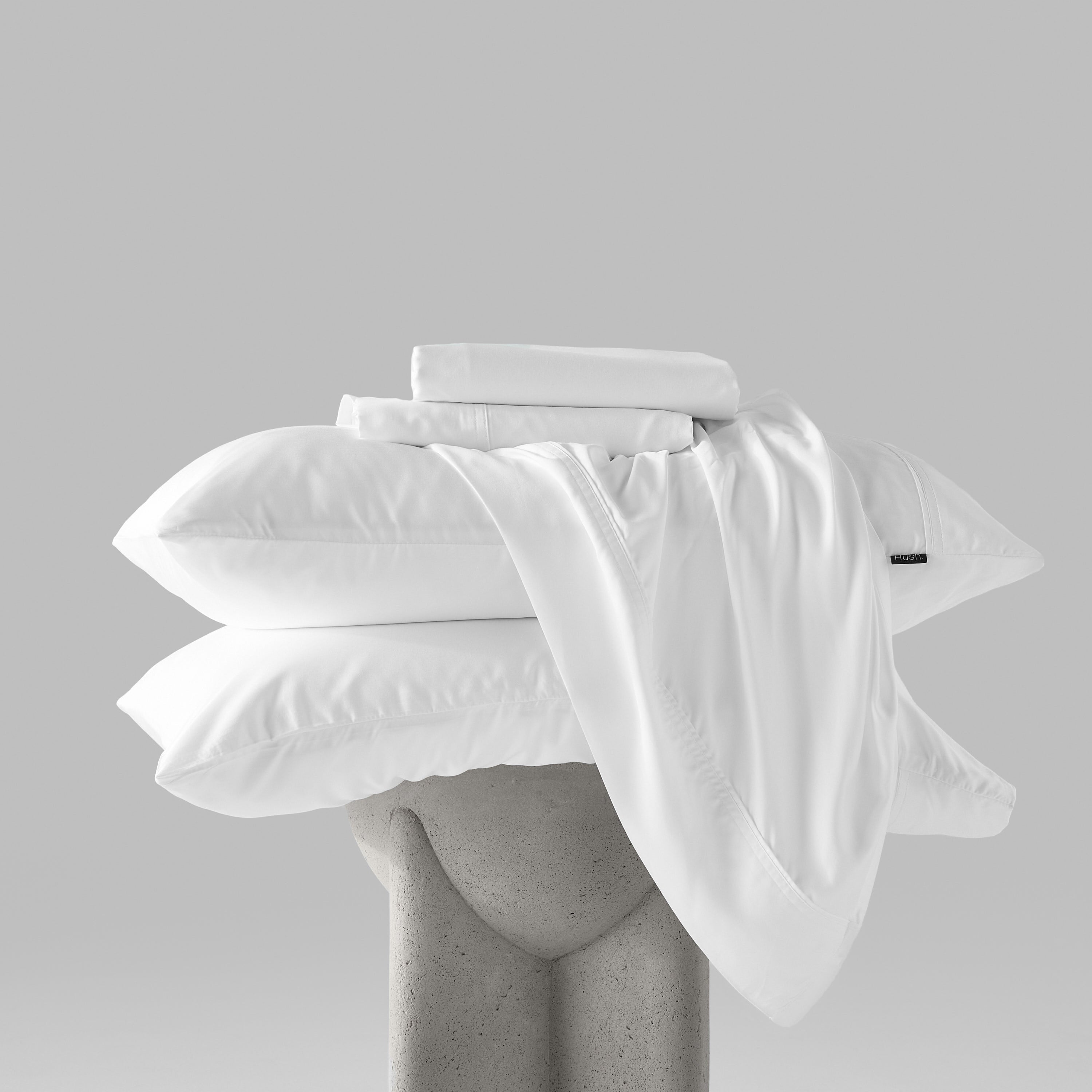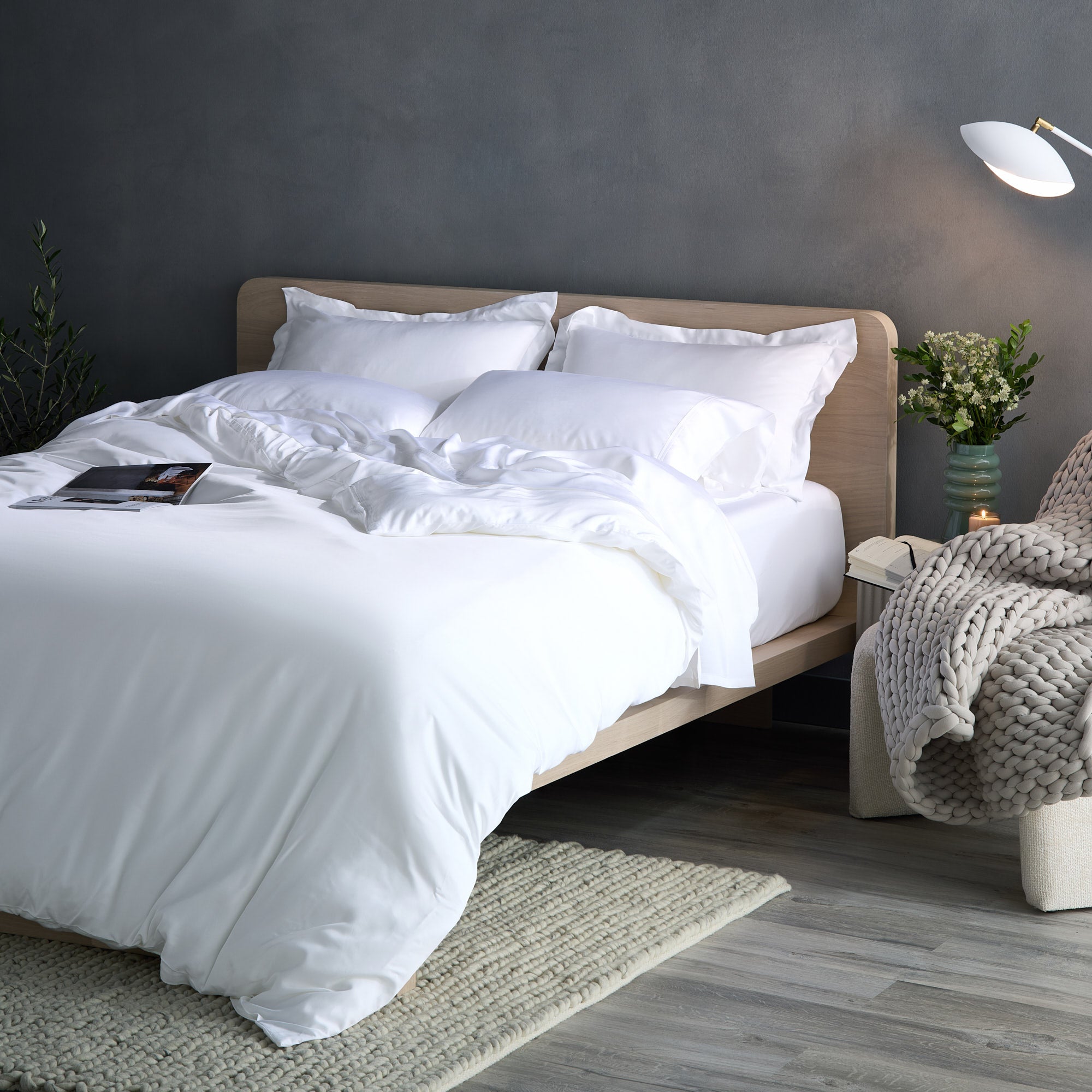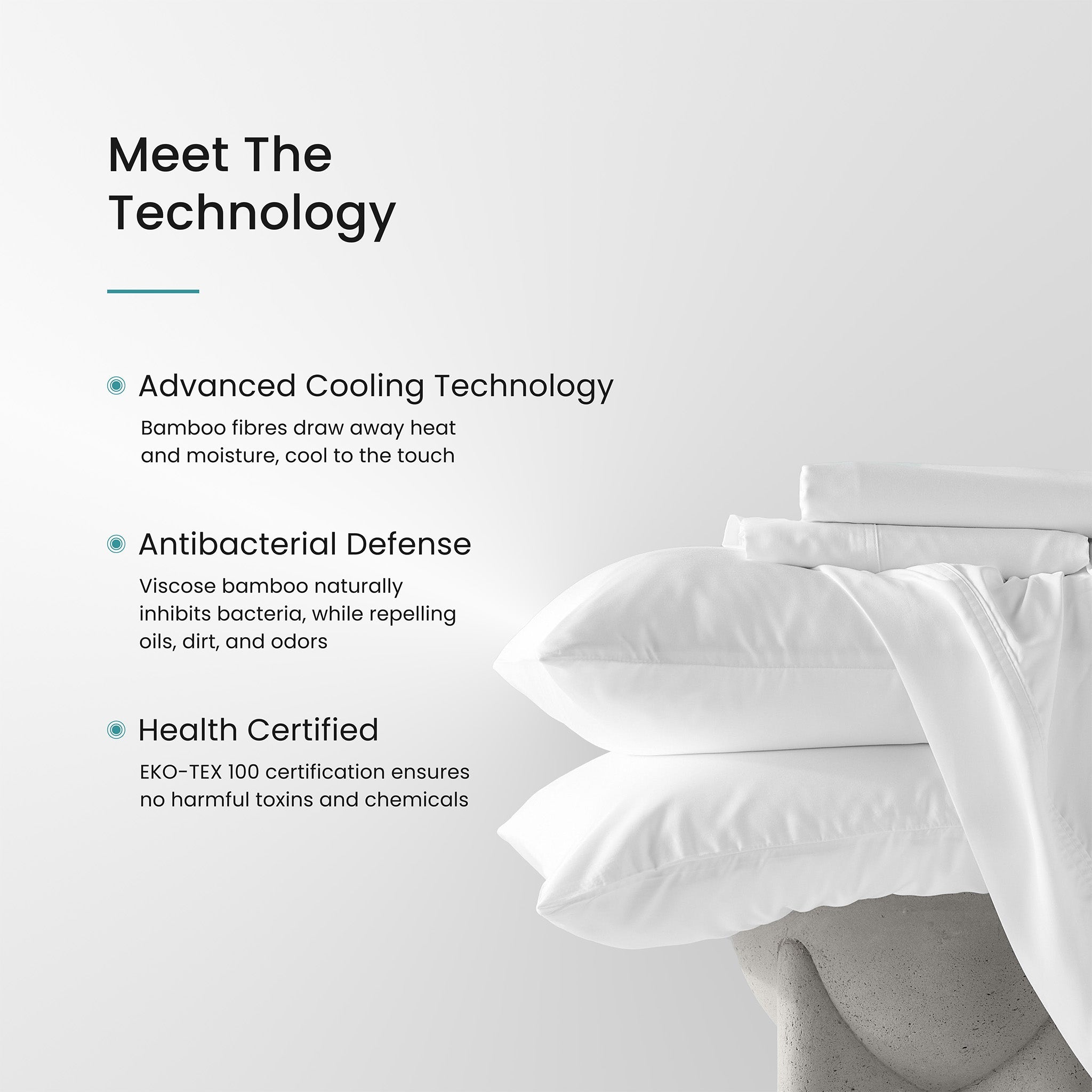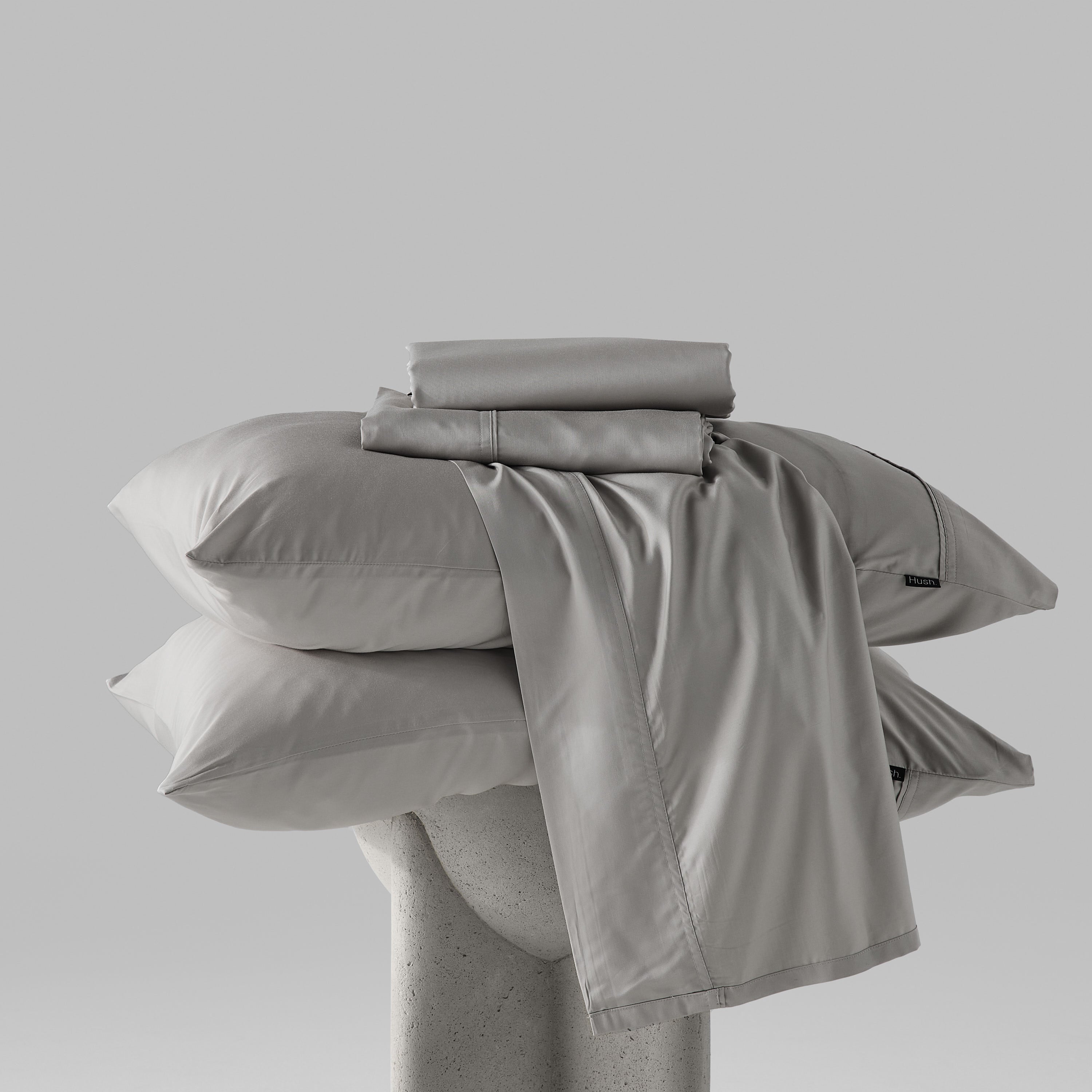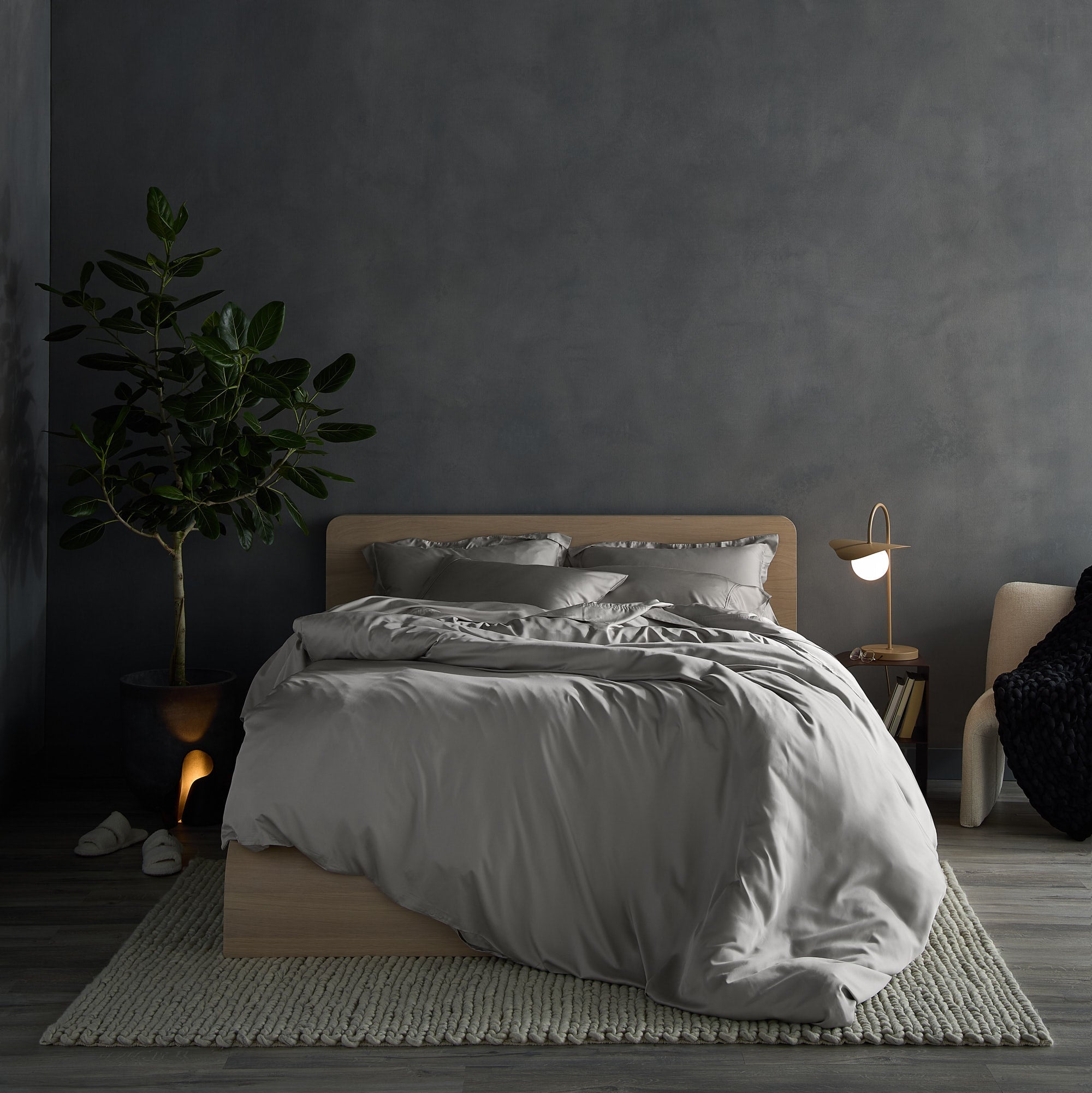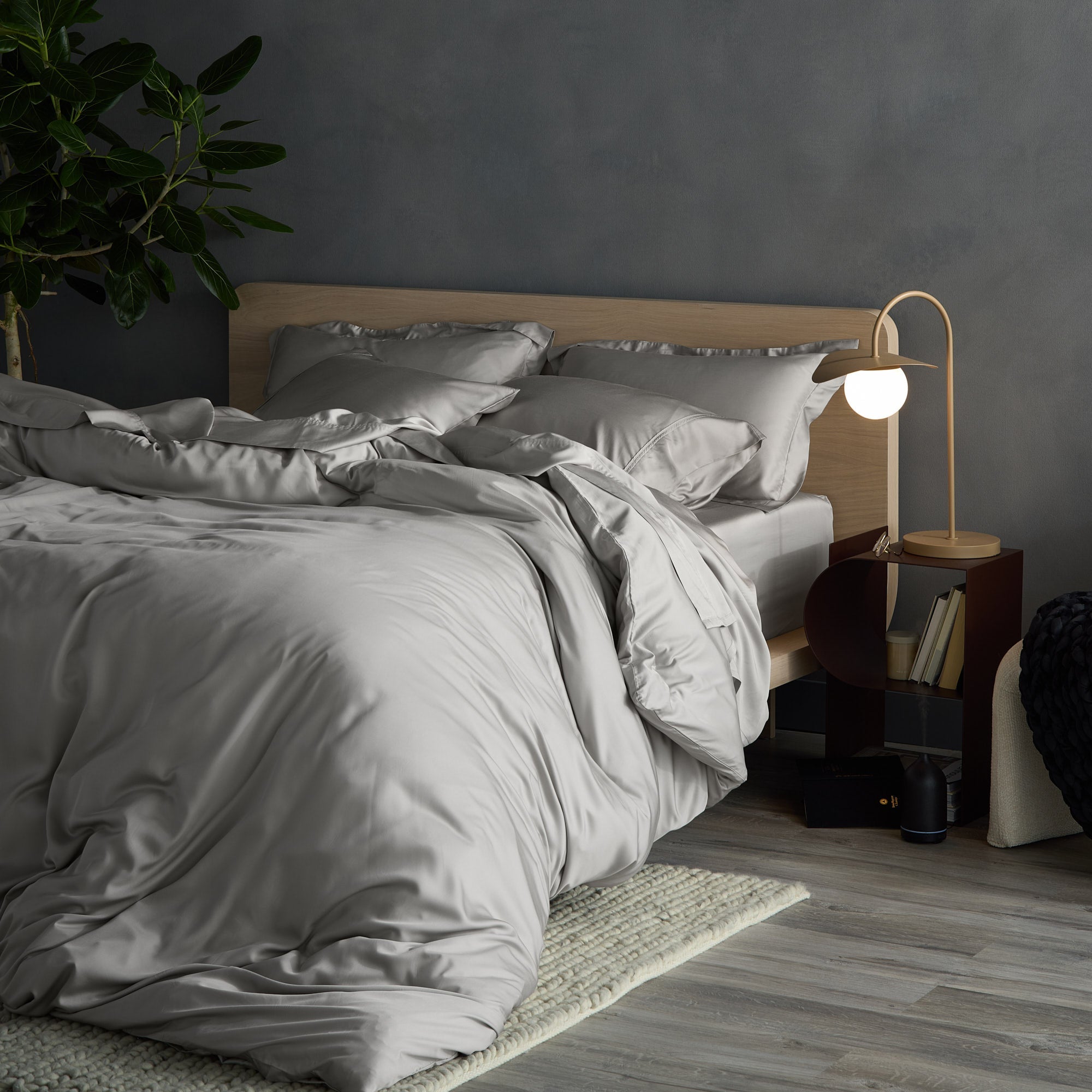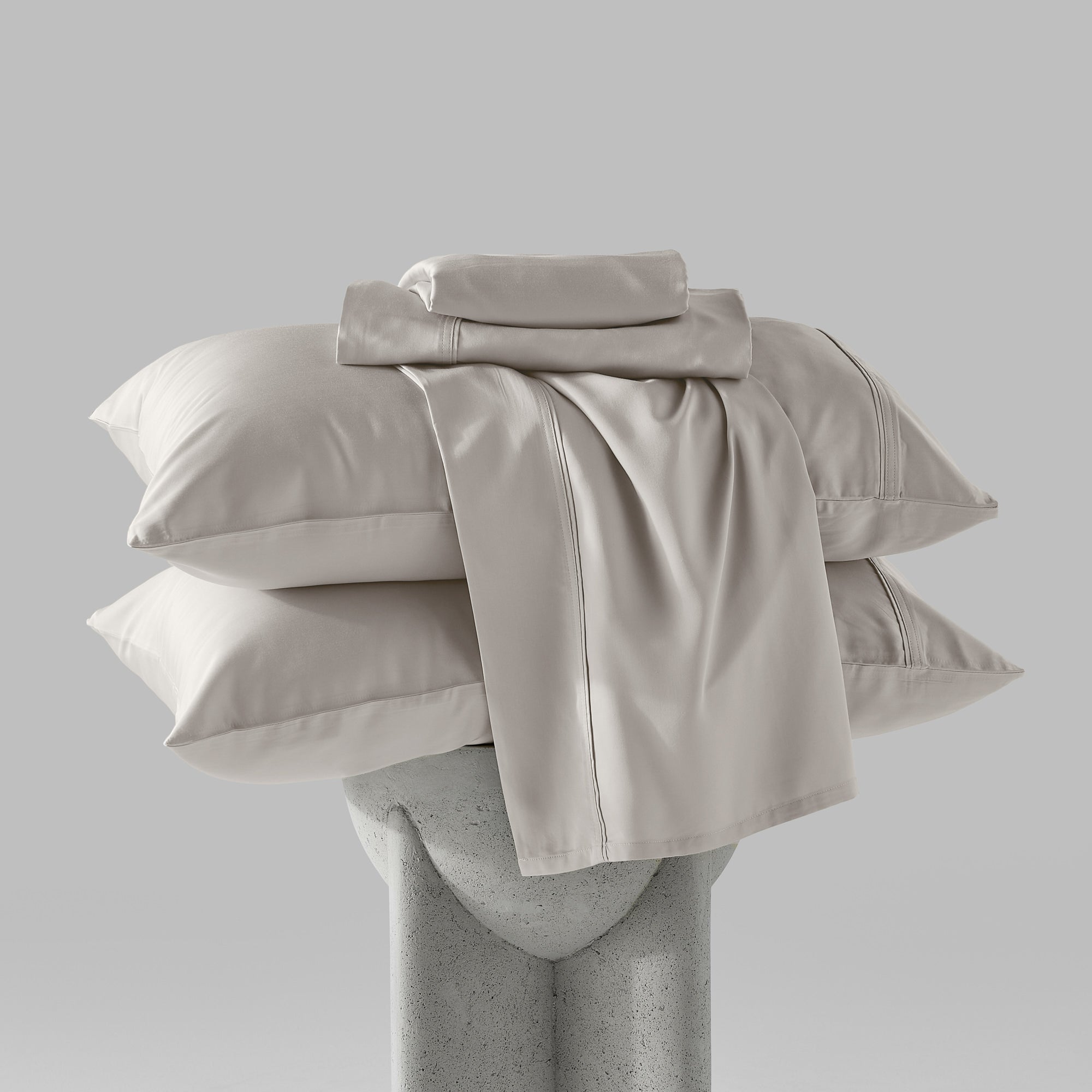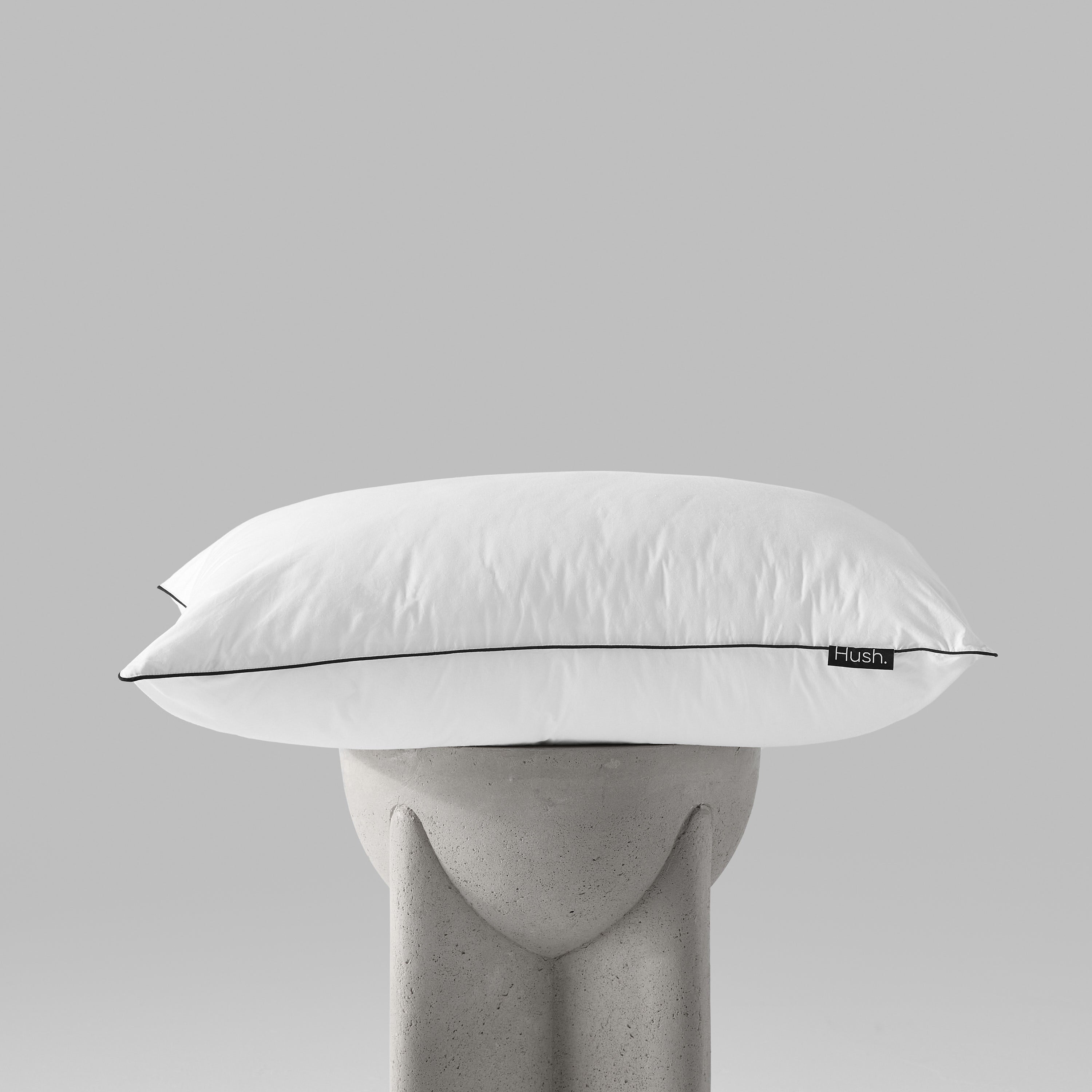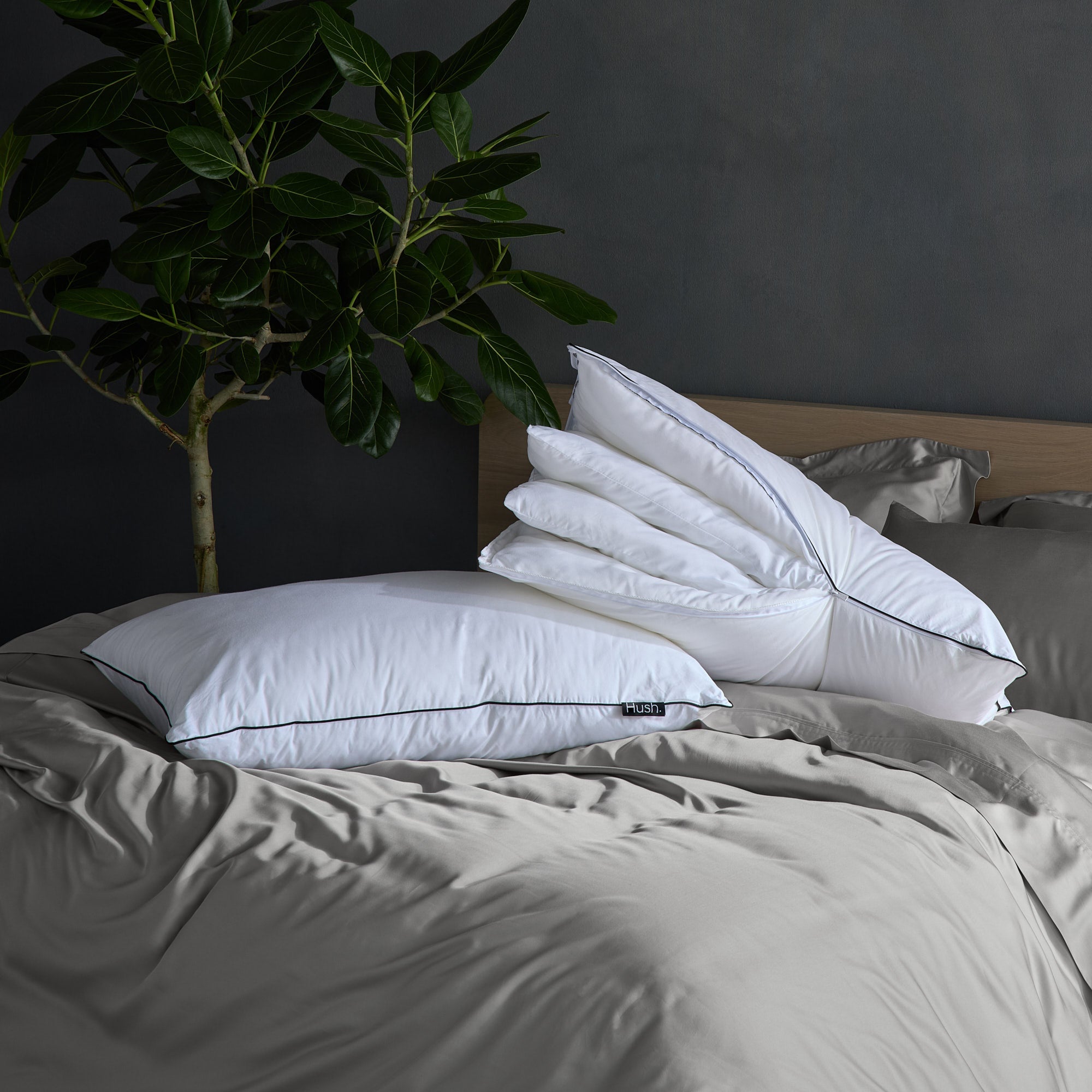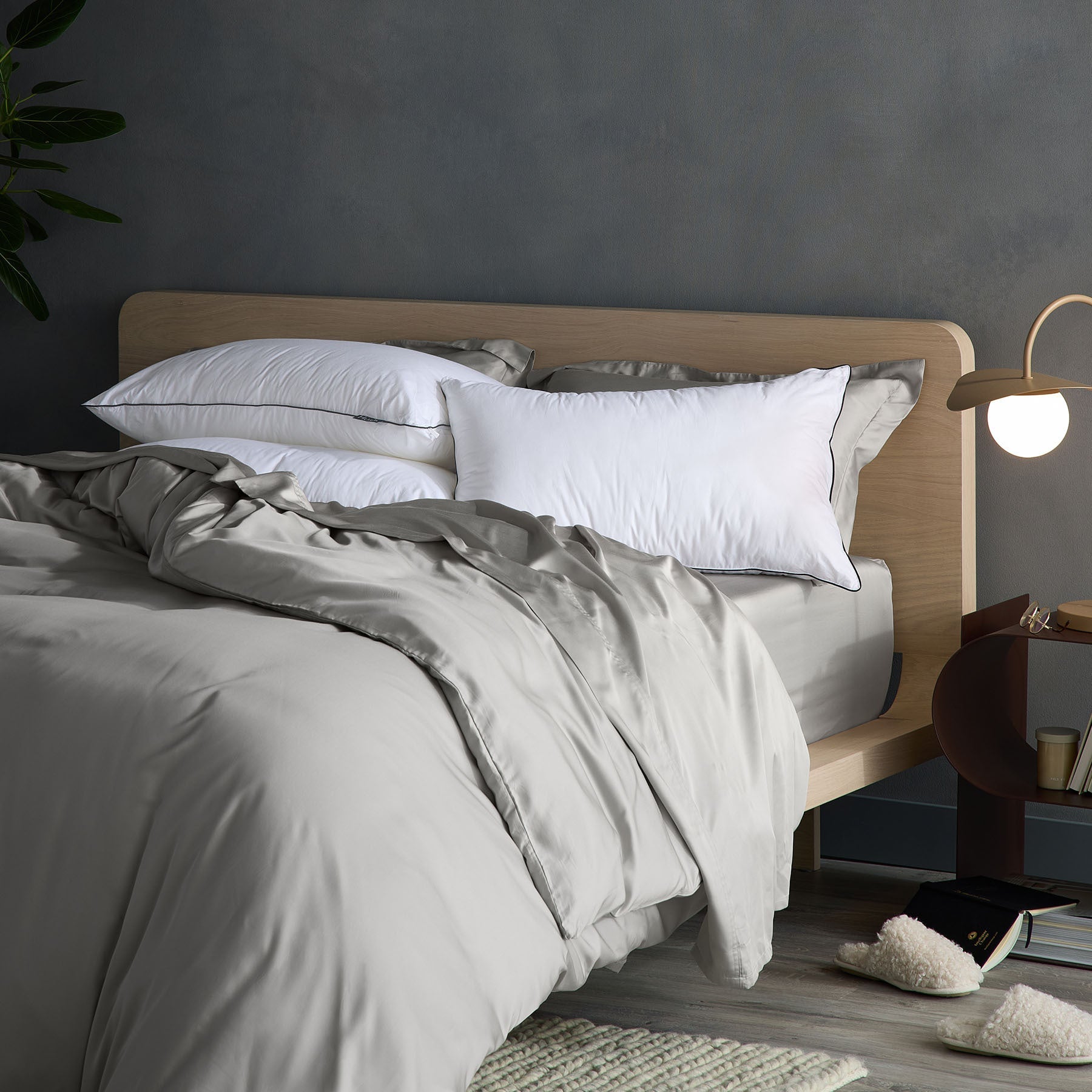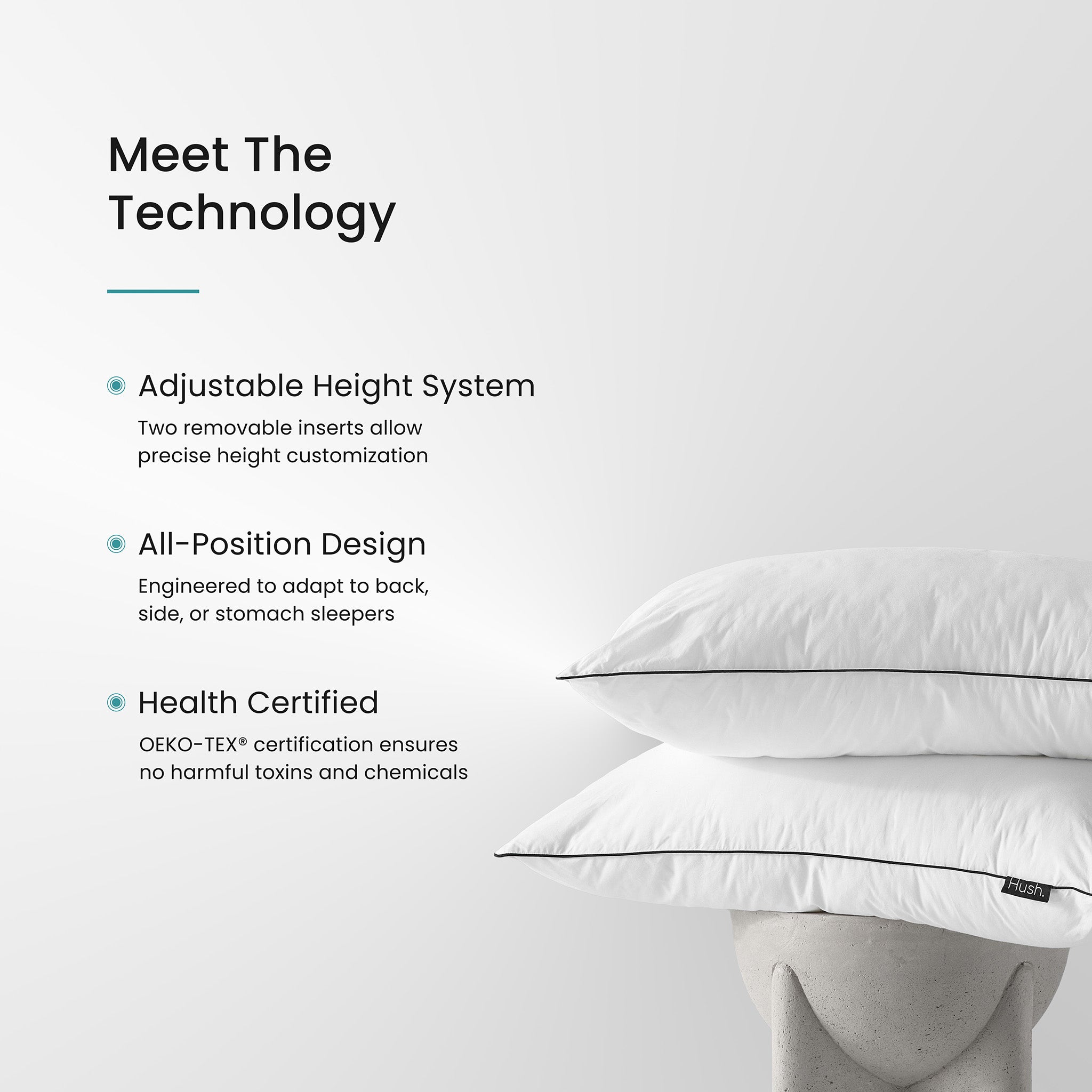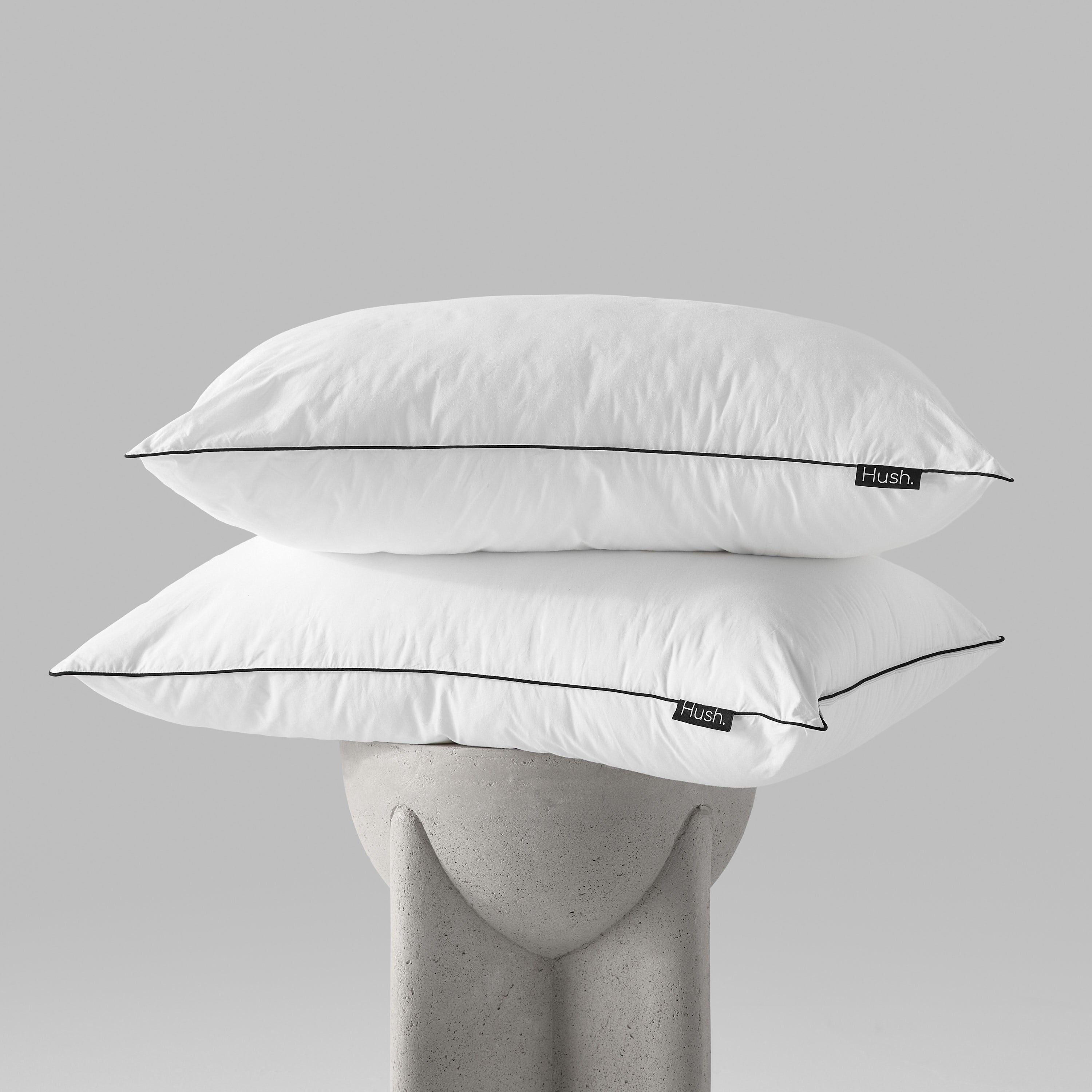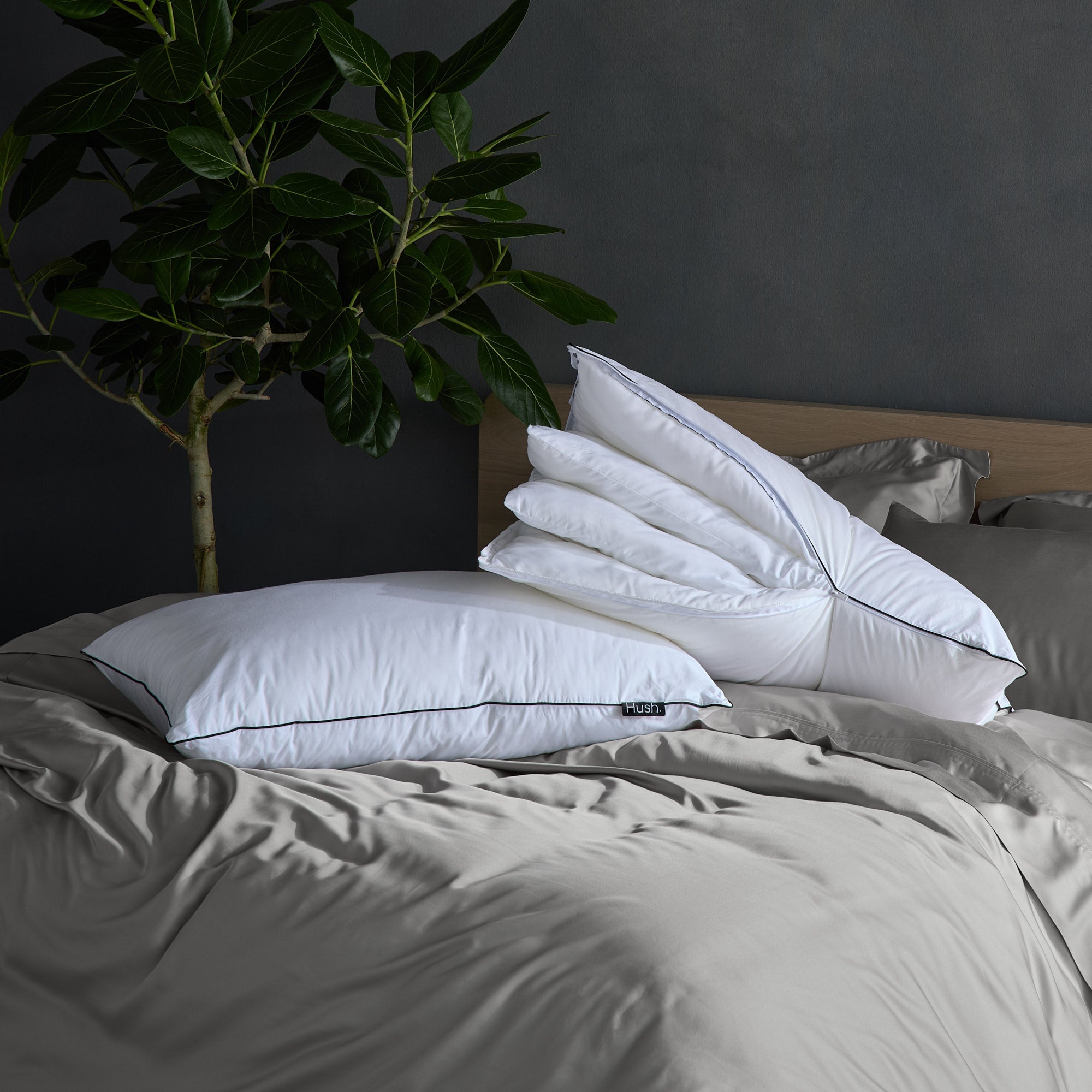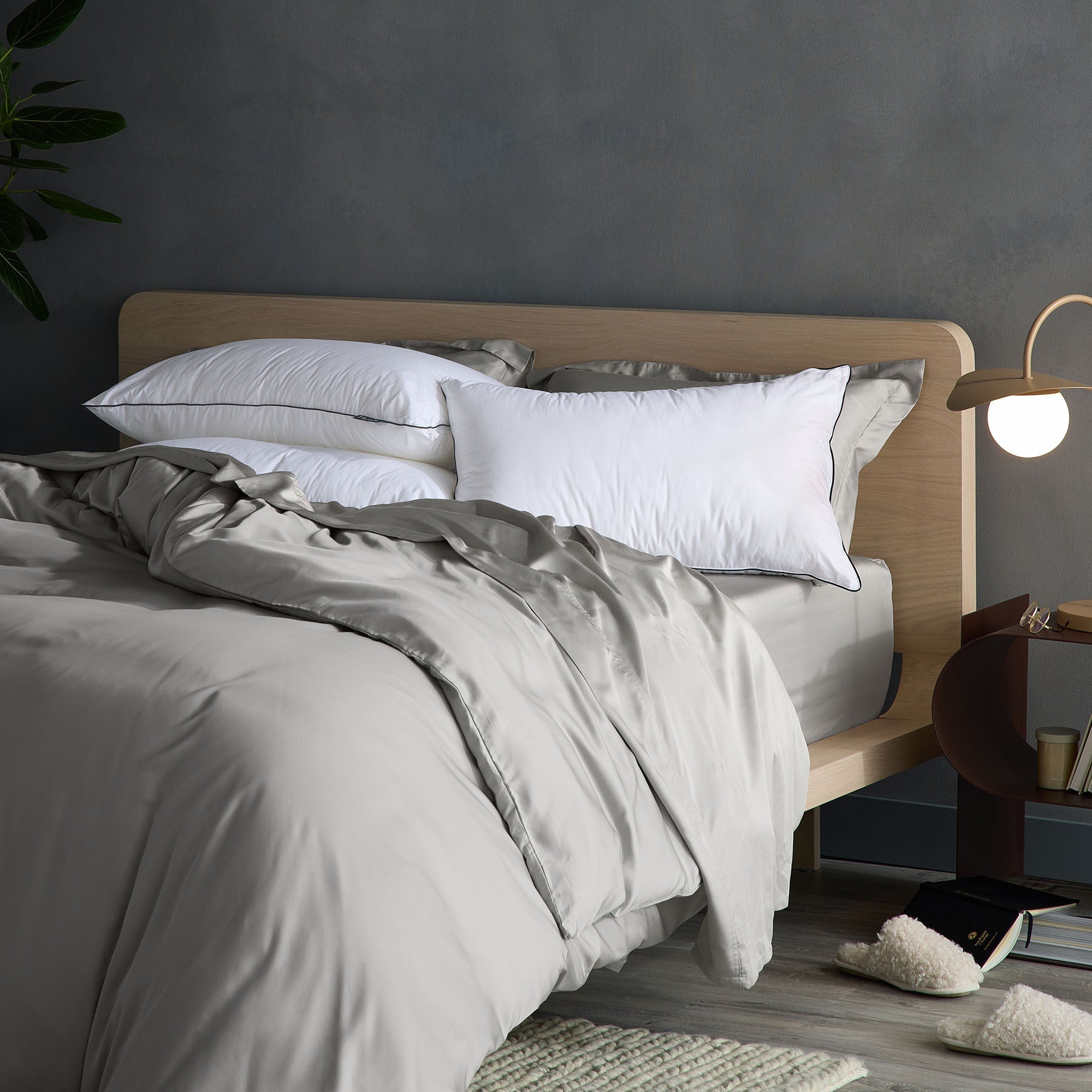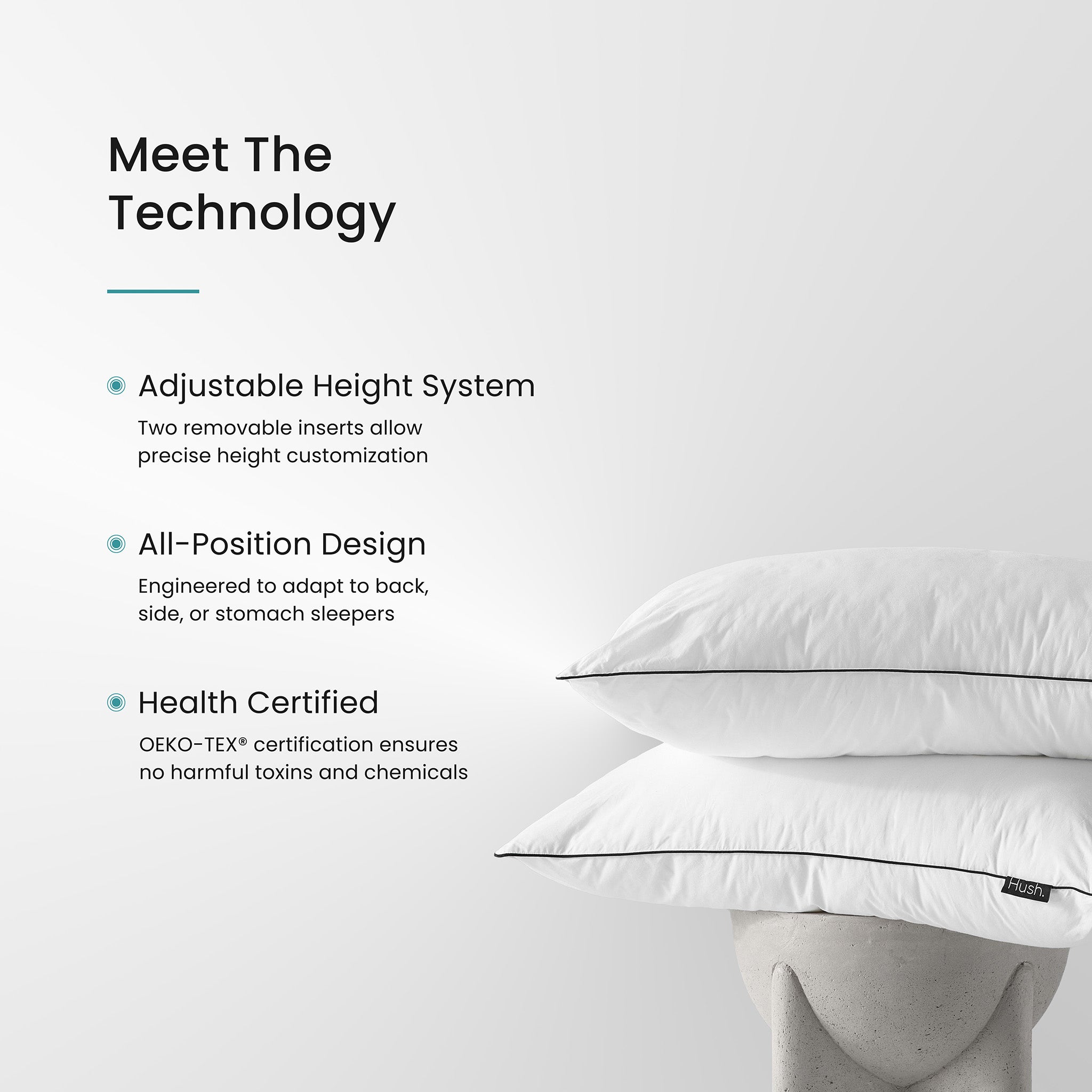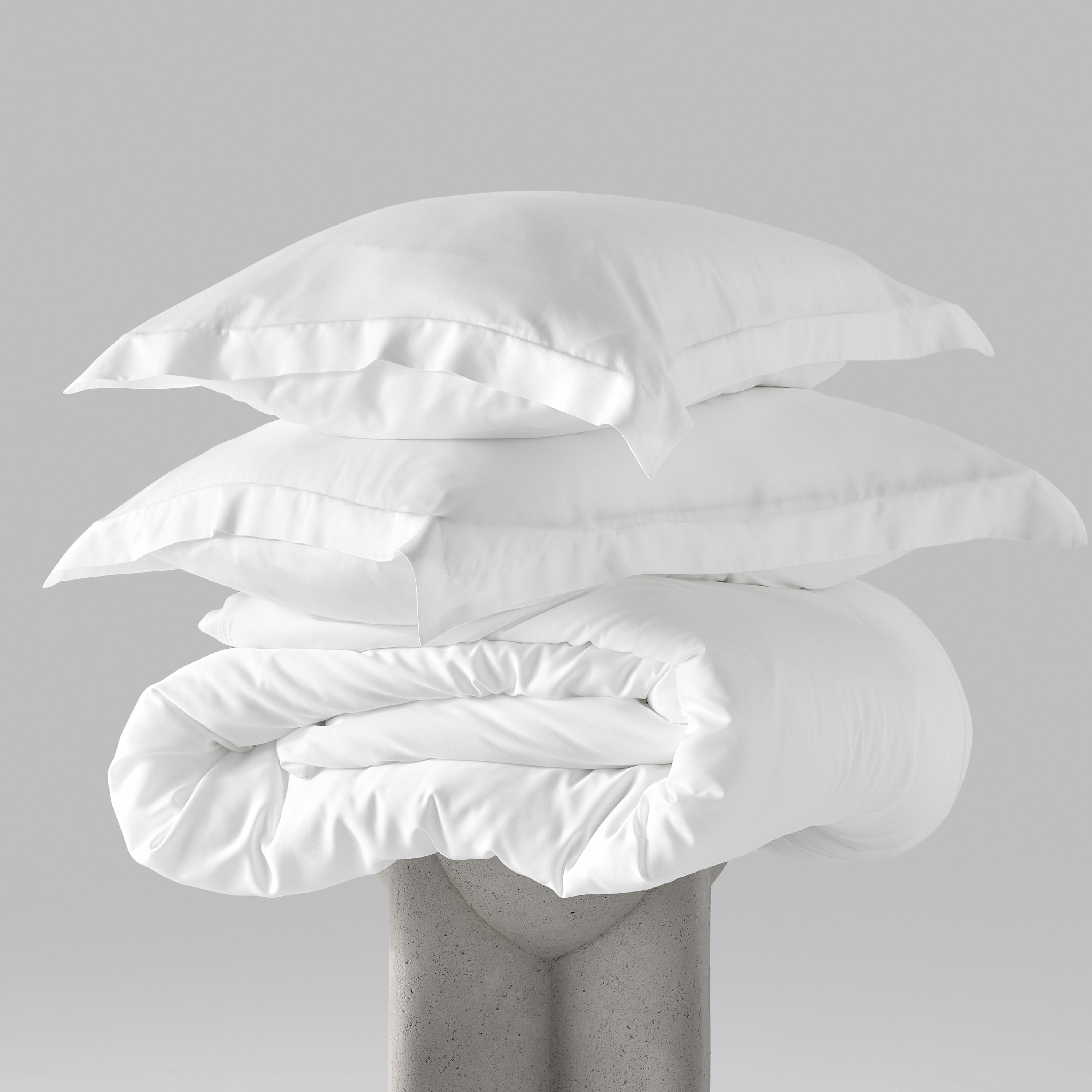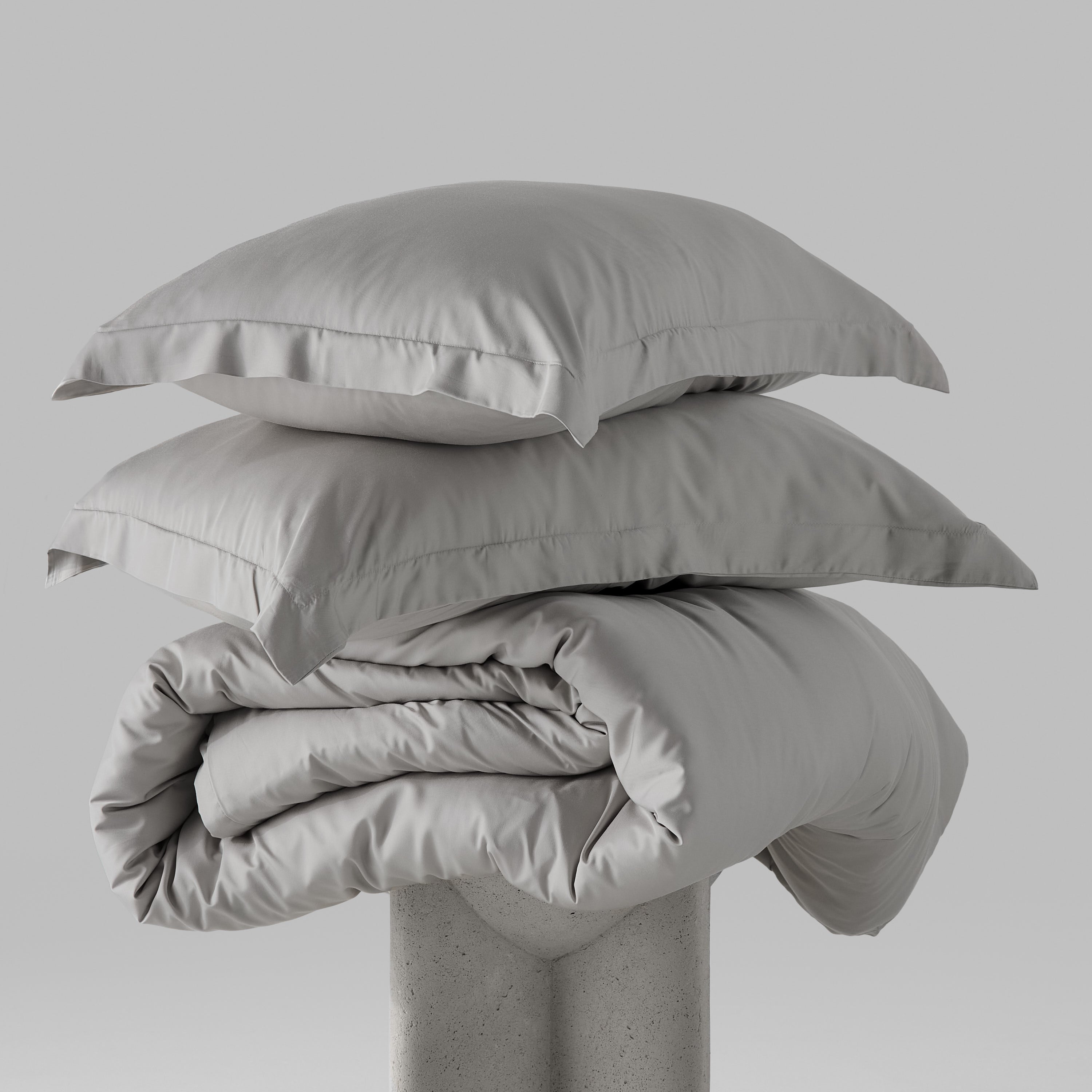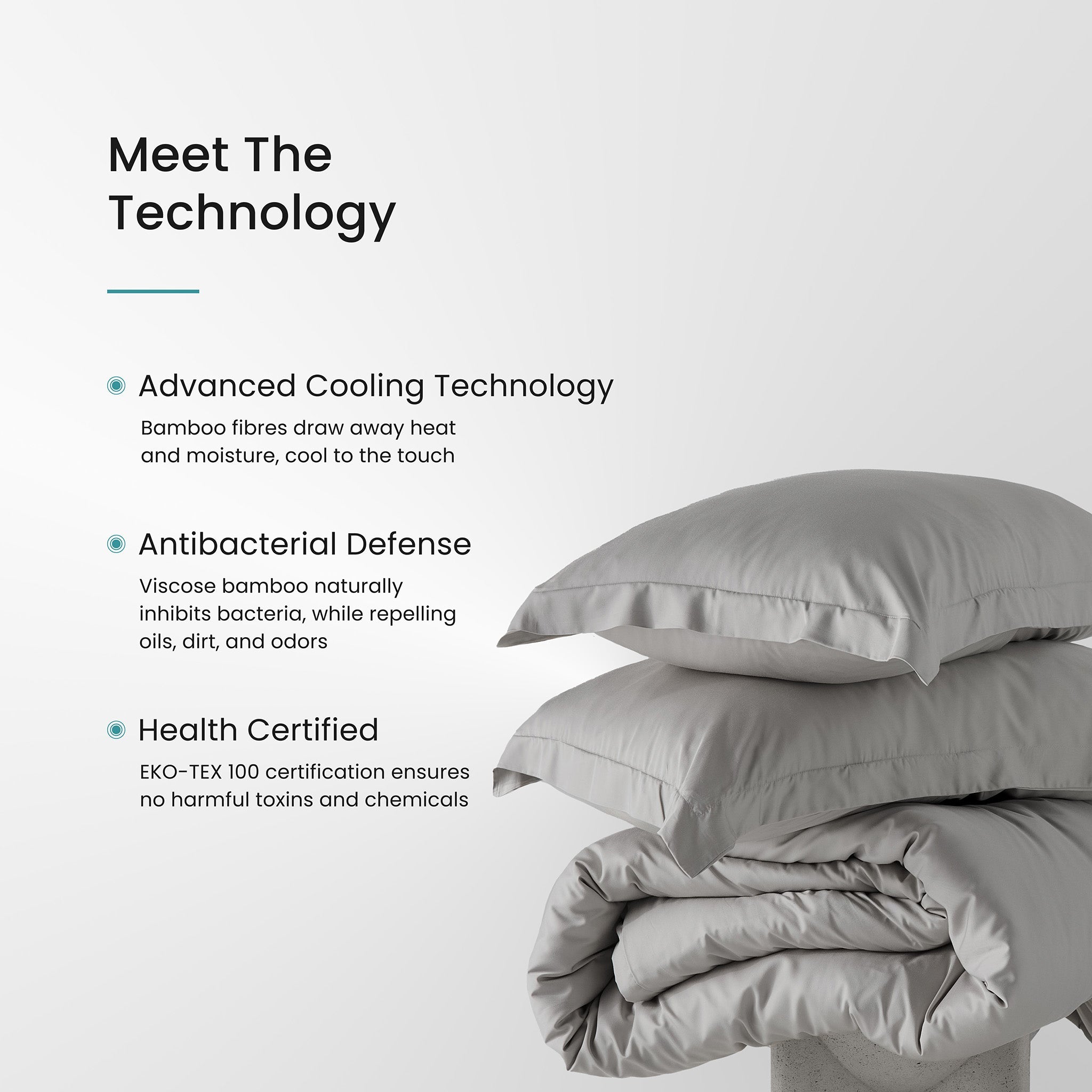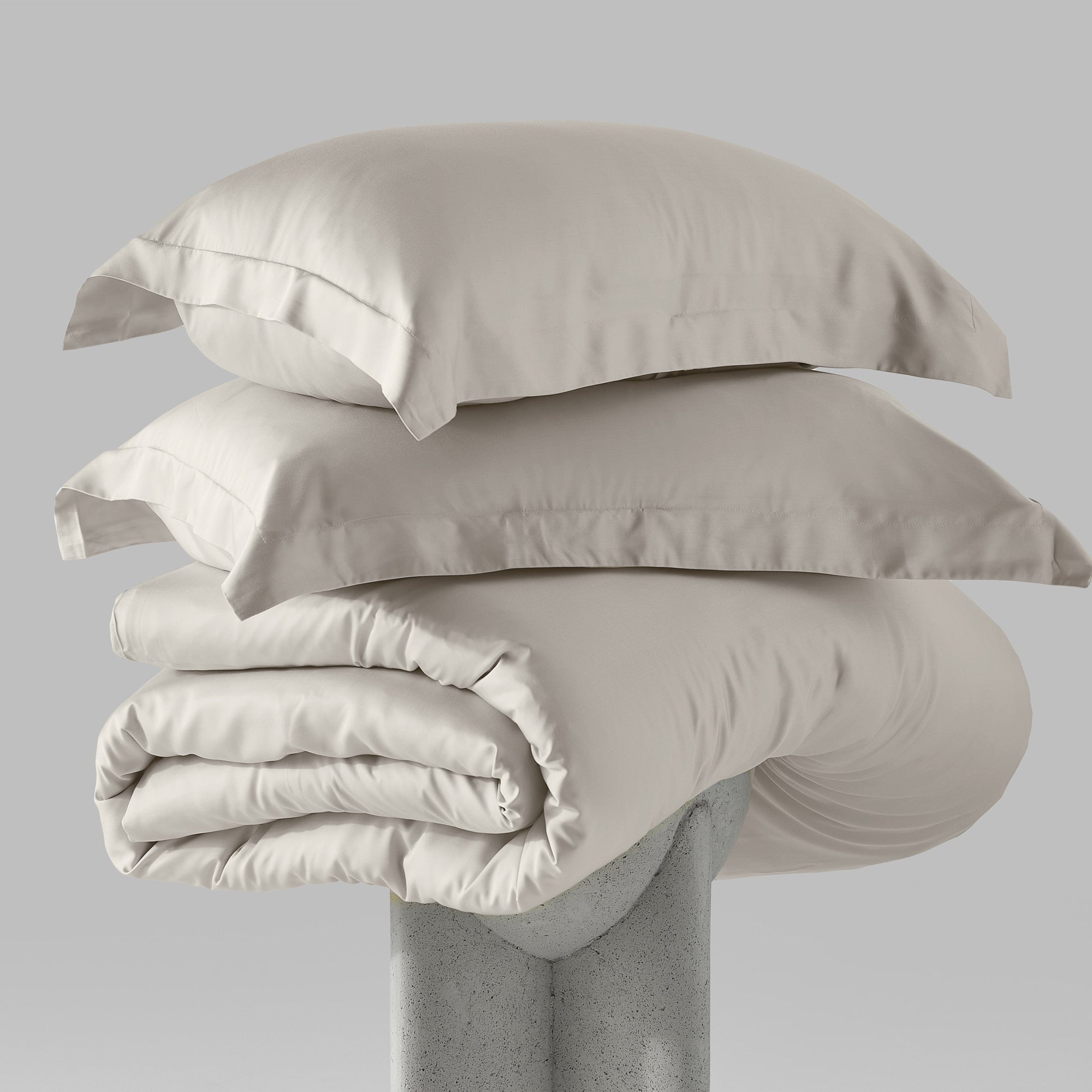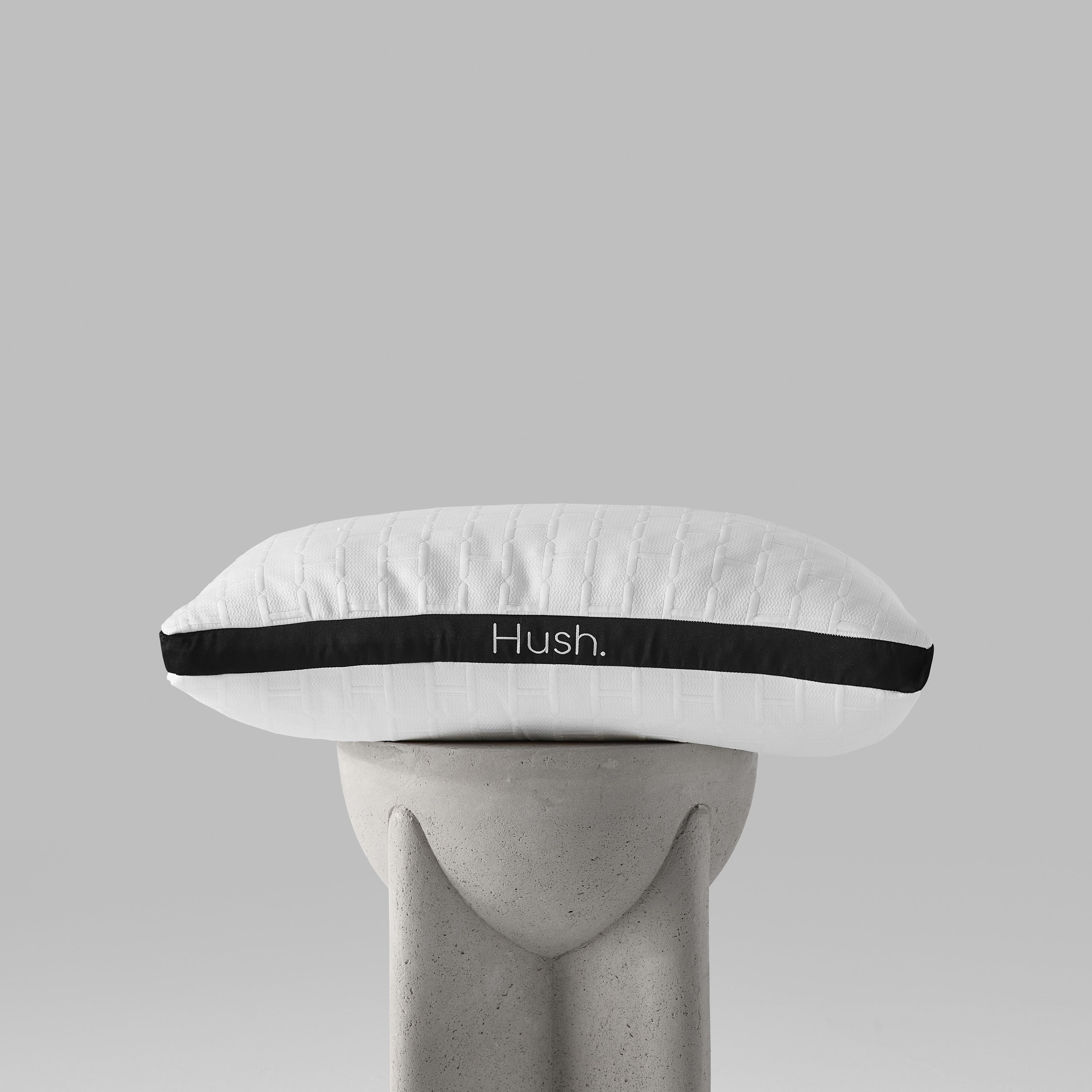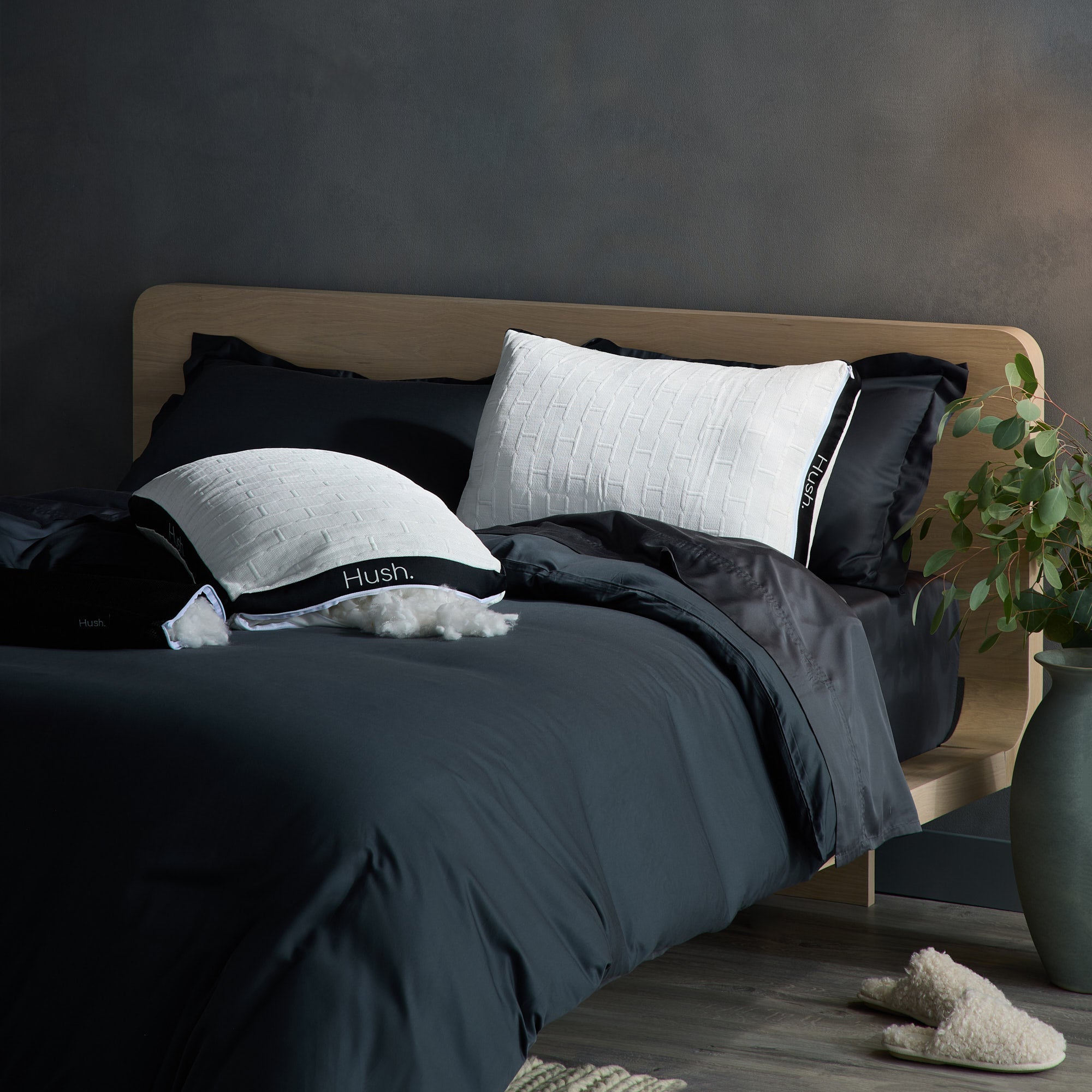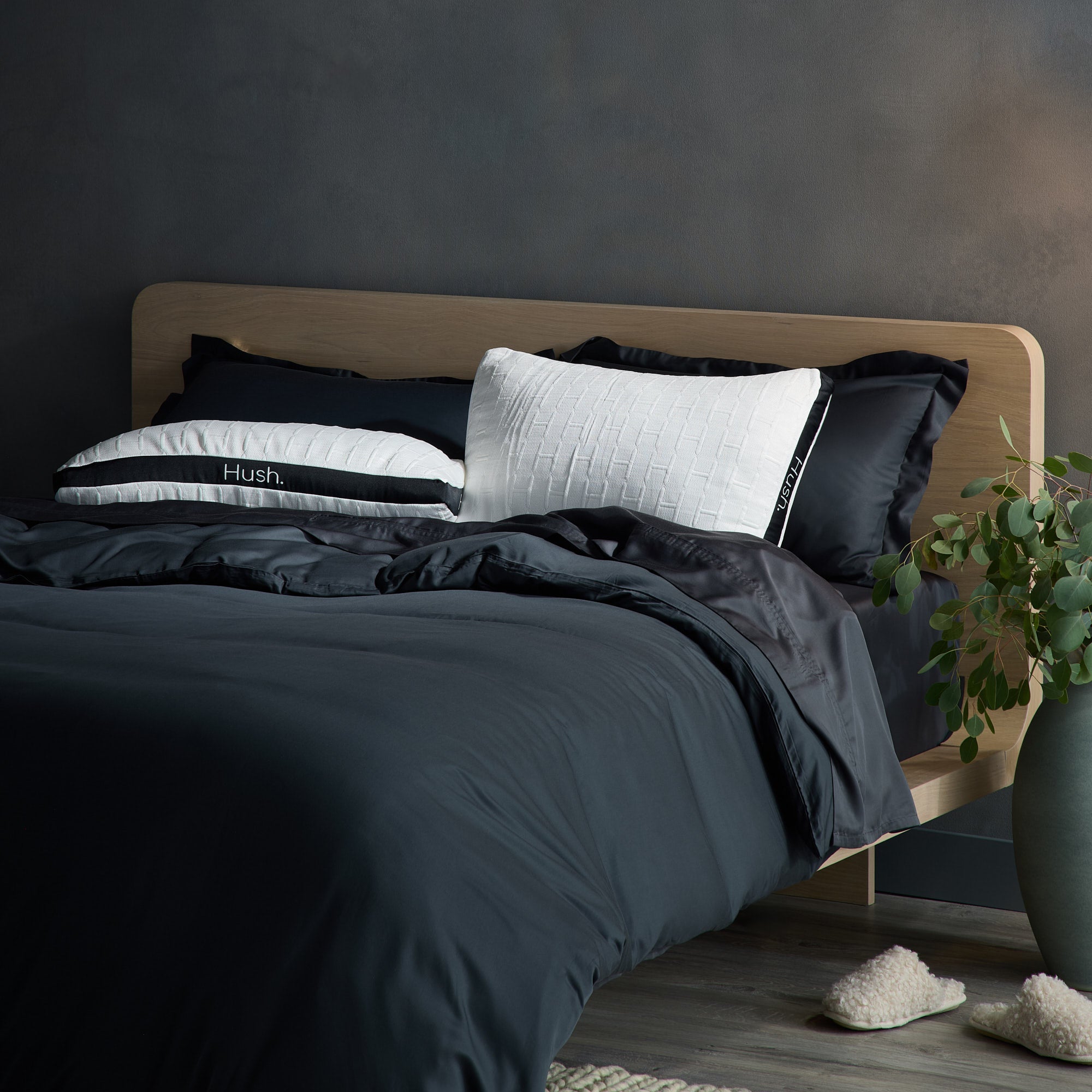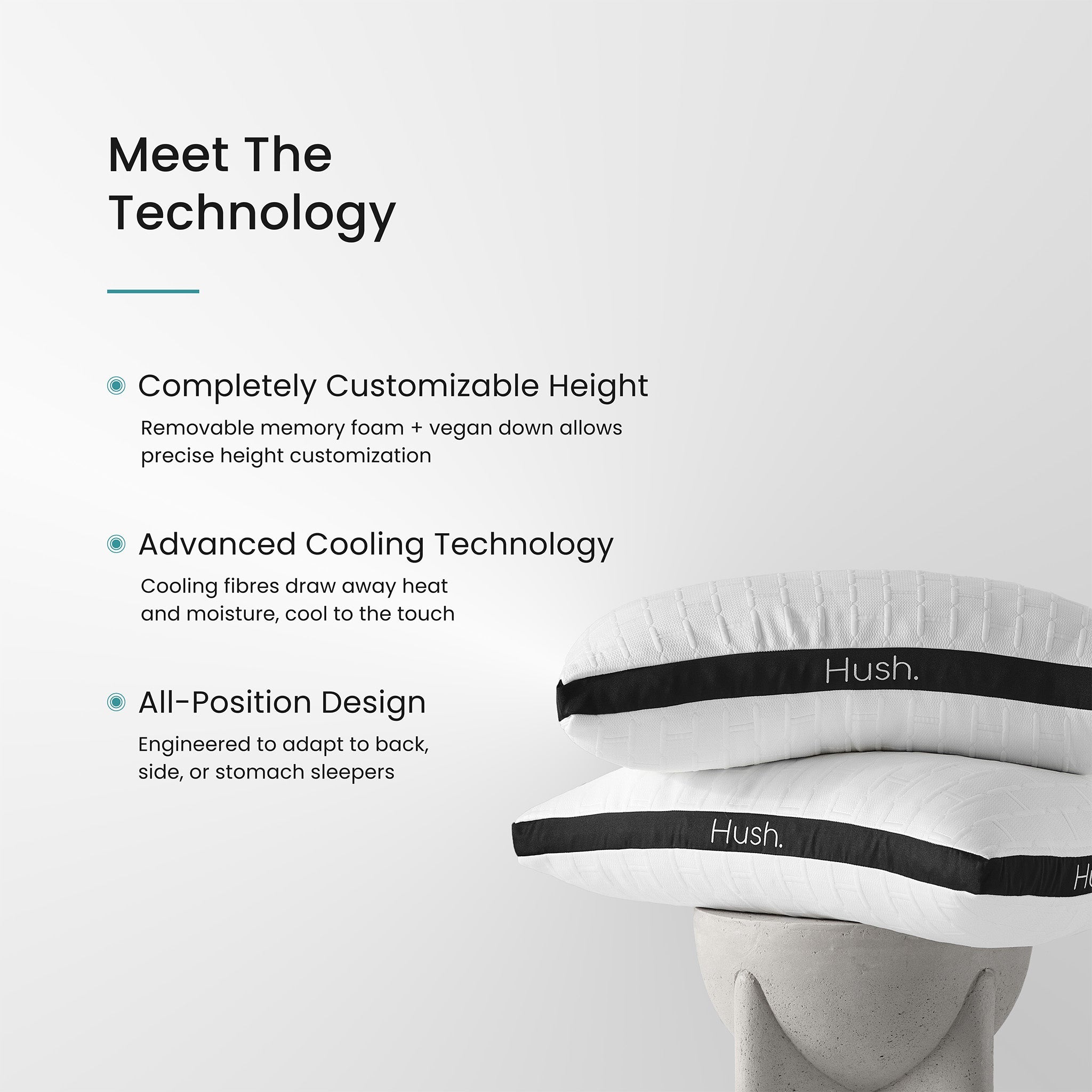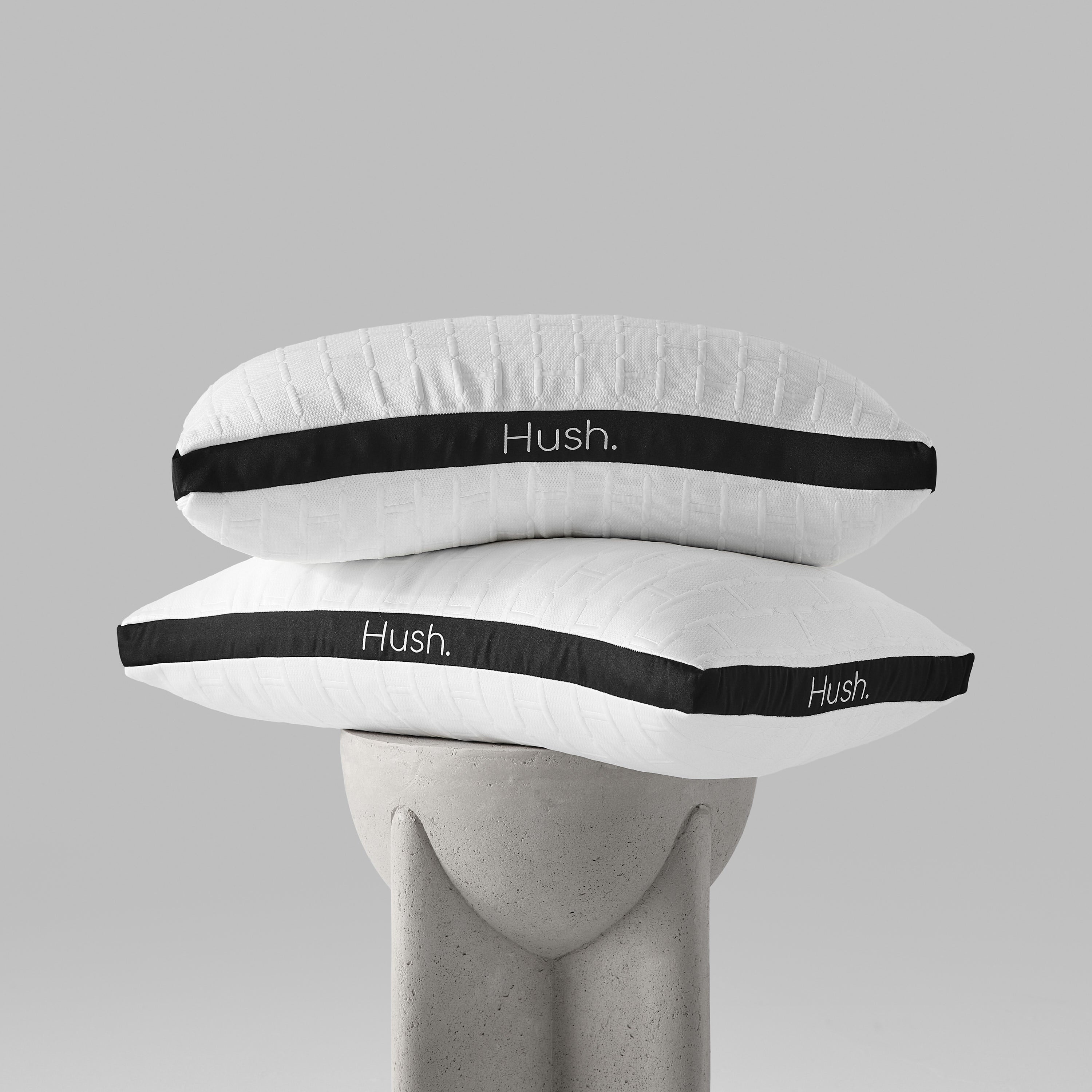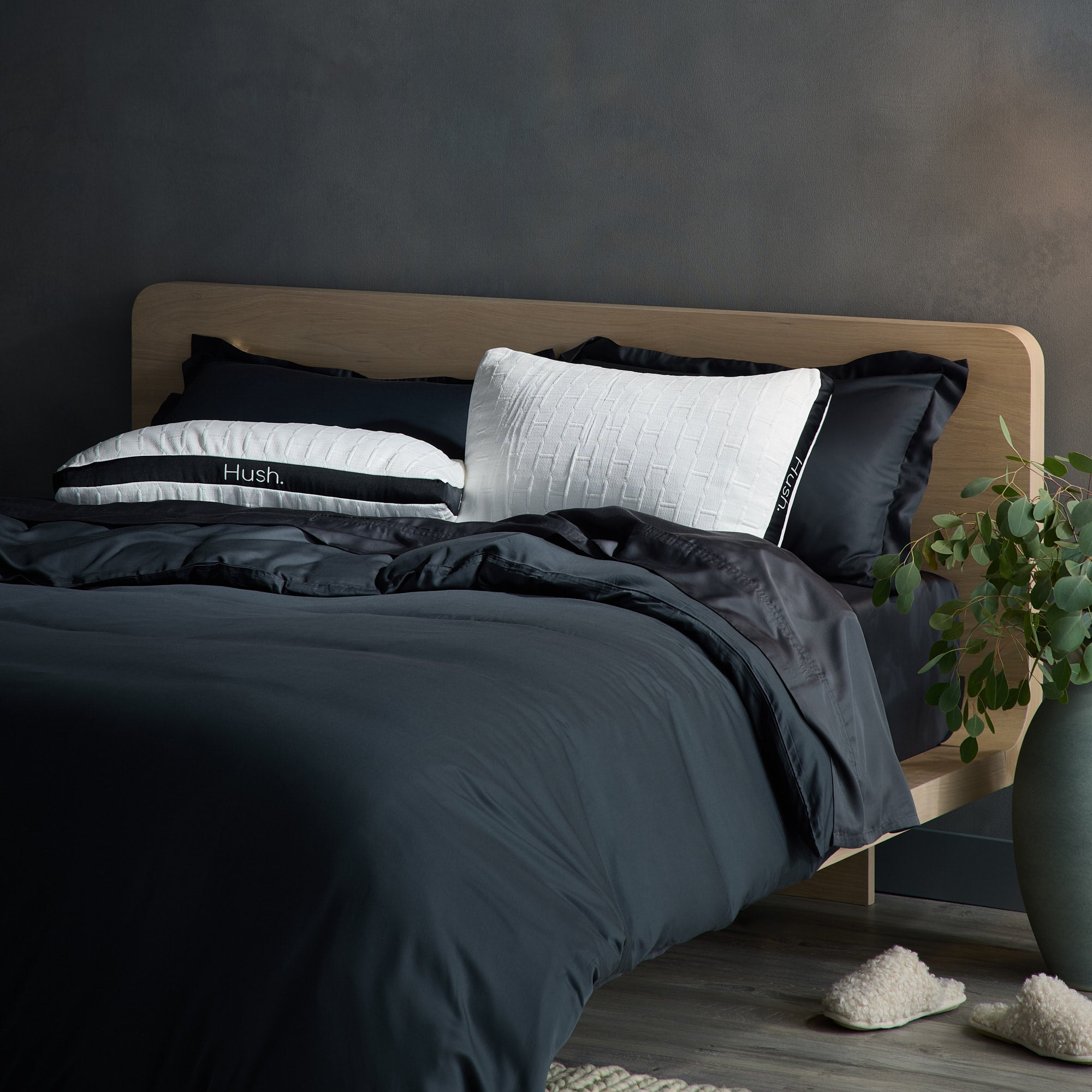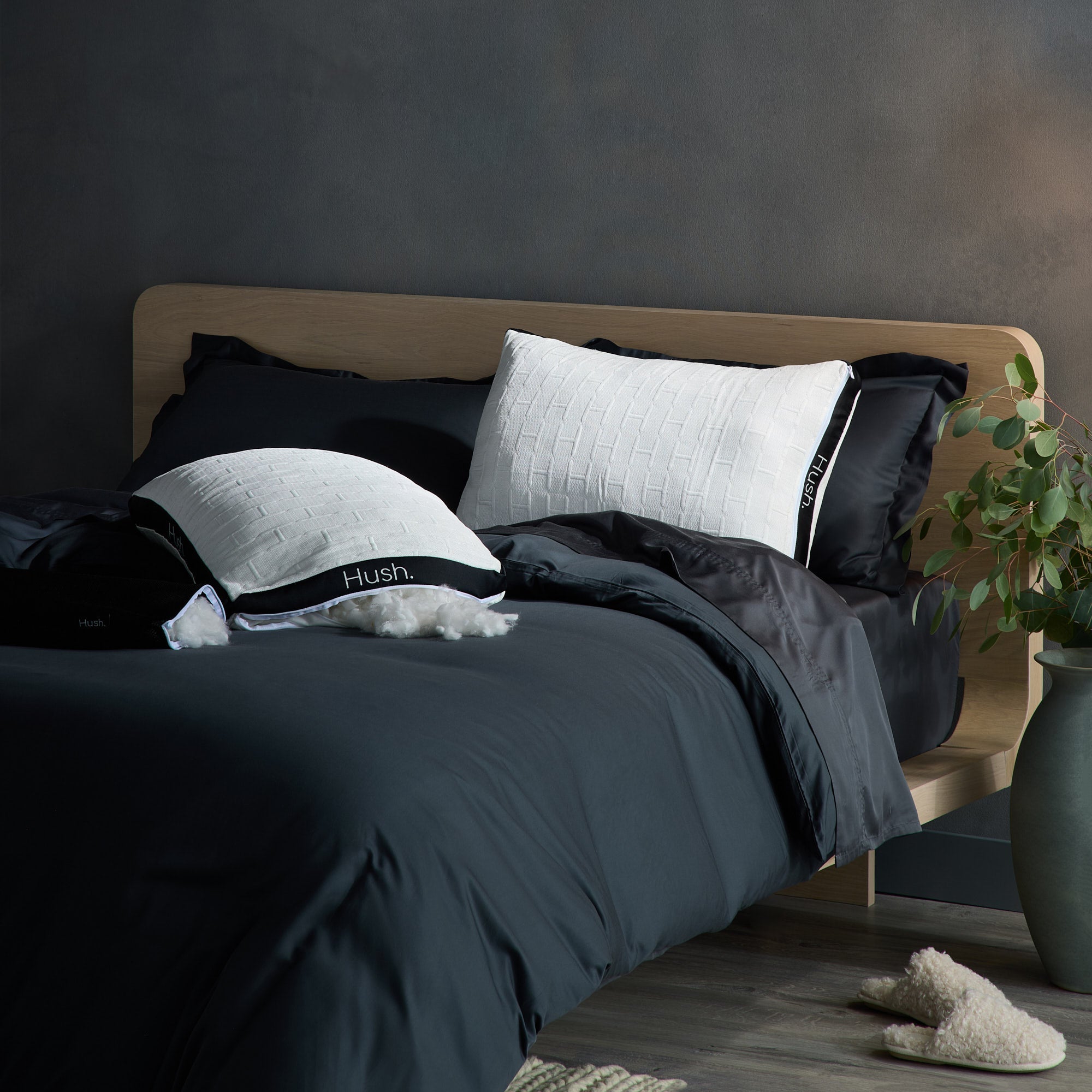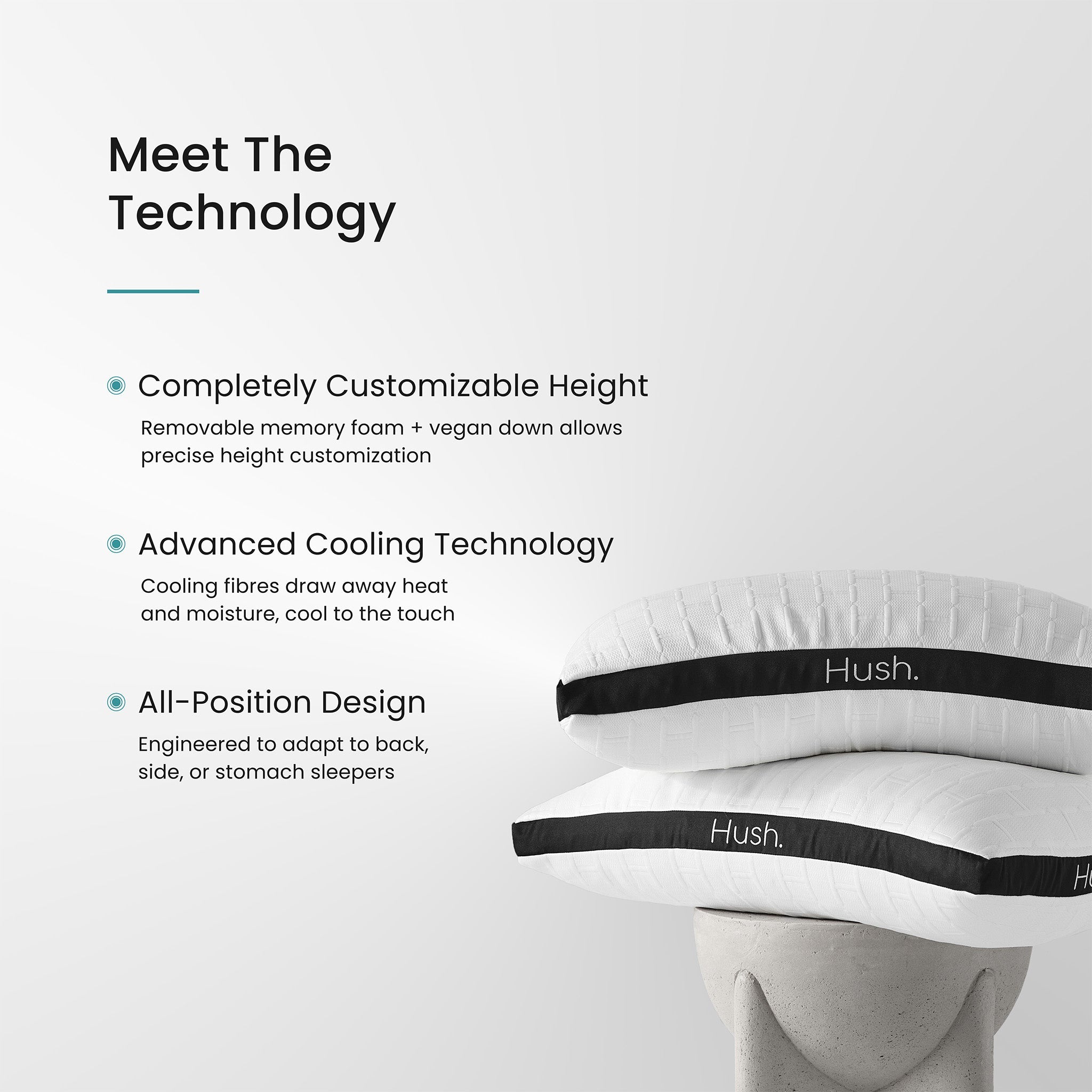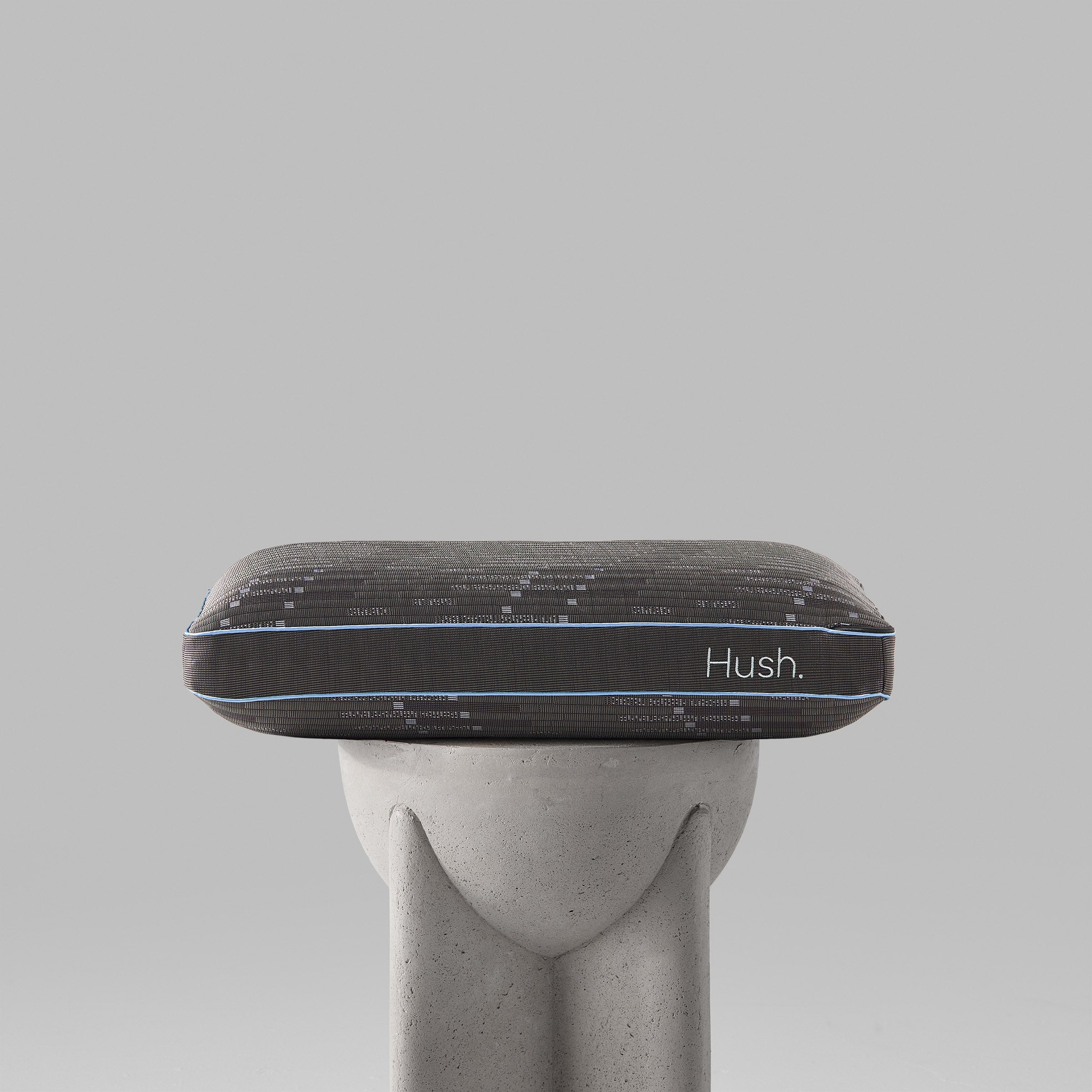Weighted blankets are booming in popularity. You might have heard friends, influencers, or even big-name celebrities raving about these sleep products. But what do they actually do?
Below, we’ll explain how they affect your body, according to the best available science. Along the way, we’ll tell you about 19 benefits weighted blankets provide, from managing anxiety to reducing pain.
Some of these benefits have less scientific support than others. However, in most cases, that’s just because weighted blankets are a relatively new field of study. Further research will most likely confirm some of the more speculative benefits. We’ll explain the current state of the science for each benefit listed below, helping you make an informed call about whether a weighted blanket is right for you.
At a glance:
- How Weighted Blankets Work
-
19 Important Weighted Blanket Benefits
- Decrease Anxiety
- Improve Sleep
- Combat Depression
- Lower Your Stress Response
- Reduce Pain
- Increase Your Focus
- Prevent Fidgeting
- Help With Restless Leg Syndrome
- Stimulate Melatonin Release
- Lower Your Cortisol
- Relieve Sensory Processing Disorder
- Improve Senior Health
- Ease Fibromyalgia Symptoms
- Make Menopause Less Annoying
- Lower Your Heart Rate
- Improve Your Mood
- Reduce Frequency of Seizures
- Help With Alzheimer's and Dementia
- Relieve Panic Attacks
- Who Might Benefit From a Weighted Blanket?
- How to Choose a Weighted Blanket
How Weighted Blankets Work
Weighted blankets use a method called deep pressure stimulation, or DPS. The basic idea is that firm, steady pressure activates the same parts of your nervous system that respond to hugging and cuddling. Since our bodies link that kind of touch with safety, deep pressure is a built-in signal that all is well.
That's why a weighted blanket can serve as a form of stress-reducing therapy. Their softness and weight activate sense receptors that dial down your body's fight-or-flight response. This triggers feelings of calmness, relaxation, and comfort.
Feeling calmer is a pretty nice benefit on its own. However, medical research has also shown that stress reduction benefits your overall health. Prolonged stress can cause depression, weaken your immune system, and increase your risk of heart disease, among many other negative effects. If deep pressure stimulation helps you feel calmer, it could also boost your long-term health in other ways.
Where did this idea originate? Researcher and autism advocate Temple Grandin discovered deep pressure therapy after noticing that cows on a ranch calmed down when squeezed in a narrow chute. She created a device called the "squeeze machine" which used gentle pressure to help children with autism spectrum disorder reduce anxiety and tension.
Since then, occupational therapists have developed many other forms of deep pressure therapy. Weighted vests, deep tissue massage, and yes, weighted blankets all use deep pressure stimulation to produce feelings of calmness and well-being.
19 Important Weighted Blanket Benefits

Here are some of the most notable potential benefits of a weighted blanket. Keep in mind that this isn't an exhaustive list. There's still a lot of research to be done on weighted blankets, and scientists may discover even more ways they can help!
#1: Decrease Anxiety
One of the best-studied of weighted blankets is their ability to reduce anxiety. This is true even for worries caused by significant life challenges - chemotherapy, for example, as seen in this 2020 study. In addition, a systematic review of the existing scientific literature concluded that there’s good evidence in favor of using a weighted blanket to treat anxiety.
#2: Improve Sleep
Many people report that they fall asleep faster and get more restful sleep under a weighted blanket. This is backed up by experimental research like this randomized trial, performed on 120 patients being treated for insomnia and published in the Journal of Clinical Sleep Medicine. Participants using weighted blankets slept longer, felt better rested, and had higher levels of daytime activity.
#3: Combat Depression
Anxiety and depression often go hand-in-hand, so things that relieve one often make a difference in the other. That's true for weighted blankets too. The same insomnia study we referenced above reported a drop in daytime levels of depression as well as effects on insomnia and anxiety.
#4: Lower Your Stress Response
An overactive sympathetic nervous system - which activates the famous "fight-or-flight response" - can cause problems ranging from obesity to kidney disease. An experimental trial on 50 adults found that deep pressure stimulation calmed those nerves, lowering levels of physiological stress. The linked study used a weighted vest, not a weighted blanket, but both methods work in similar ways and it's likely they have similar benefits.
#5: Reduce Pain
It might sound strange that a heavy blanket can make your body hurt less. However, a 2021 randomized study of 94 chronic pain patients found that the gentle pressure from a 15-lb. weighted blanket reduced their symptoms. It's worth noting that this wasn't just a side effect of better sleep or reduced anxiety - the researchers controlled for those factors.
#6: Increase Your Focus
Deep pressure stimulation also appears to improve concentration. One notable study tested the effects of weighted vests on 110 children with attention deficit hyperactivity disorder (ADHD) who were performing a computerized test. Participants wearing the vests paid more attention, responded faster, and showed higher levels of on-task behavior.
These results were backed up by a systematic literature review published in 2018. Weighted blankets can likely help with ADHD and mental focus, since they provide a similar type of deep touch pressure.
#7: Prevent Fidgeting
Many of us take too long to fall asleep because of the constant urge to shift around in bed. Weighted blankets may help reduce that restlessness. A year-long study of 31 participants found they moved around less at night when using a weighted blanket. As a result, they also reported it was easier to fall asleep and they were better rested.
#8: Help With Restless Leg Syndrome
For some people, nighttime movement goes way beyond mild fidgeting and into uncontrollable leg twitches and spasms. This problem is known as restless leg syndrome.
Sadly, it's one of the least-studied sleep disorders, so there's no scientific data about whether weighted blankets can help. However, many people report that the firm hug of a weighted blanket eases their RLS symptoms.
#9: Stimulate Melatonin Release
A laboratory study of 26 adults found that deep touch pressure from a weighted blanket increased the concentration of melatonin in their saliva. This hormone plays a crucial part in regulating your sleep cycles. It also acts as a natural antioxidant and anti-inflammatory agent.
Many people use synthetic melatonin supplements for these reasons, but weighted blankets may offer a gentler, safer way to boost your melatonin levels.
#10: Lower Your Cortisol
Along with increasing melatonin levels, deep pressure touch can decrease cortisol. This stress hormone is linked to numerous chronic health issues. A literature review of studies on massage-based deep pressure therapy concluded that it can reduce cortisol by around 31%, a fairly significant drop. This effect hasn’t yet been studied in weighted blankets, but we know that they work on similar receptors and work well for stress relief.
#11: Relieve Sensory Processing Disorder
Some people - particularly those with autism spectrum disorder - get more easily overwhelmed by sensory input than others. Many schools and other institutions use deep pressure therapy techniques like weighted blankets to address this problem.
The evidence that this helps with learning difficulties is surprisingly weak, but individual responses vary a lot. Many people report significant relief from using a weighted blanket for sensory processing disorder and anxiety.
#12: Improve Senior Health
Elderly people face a broad array of health challenges, many of which are linked to stress and poor sleep quality. The calming, sleep-inducing effects may help. A study of 110 patients in nursing homes showed several positive effects from weighted blanket use. The researchers observed better sleep, nutrition, cognition, and general quality of life in the participants who were given weighted blankets.
#13: Ease Fibromyalgia Symptoms
Though there haven't been any clinical studies done, many people swear by weighted blankets for relief of fibromyalgia. This isn't surprising - a shortage of serotonin is a major driver of fibromyalgia symptoms. And the pressure from a weighted blanket activates your parasympathetic nervous system, upping serotonin production.
#14: Make Menopause Less Annoying
Several of the irritating effects of menopause can be reduced by using a weighted blanket. For example, sleep disorders are eased by melatonin. As we saw earlier, weighted blankets increase your body's production of this hormone.
Menopause also frequently causes depression and anxiety, which deep pressure stimulation can relieve. If you're worried about hot flashes, consider getting a cooling weighted blanket that helps you release body heat.
#15: Lower Your Heart Rate
Weighted blankets can also slow your pulse and breathing, as shown in a 122-participant trial published in 2021.That’s good news for your overall health as well as your ability to relax. An overly high resting heart rate decreases your expected lifespan, according to a long-term study in the journal Heart. This holds true even when you account for factors like exercise and fitness that affect your pulse.
#16: Improve Your Mood
A 2017 experiment published in Occupational Therapy International showed that deep pressure touch leads to better mood and social engagement in young people with autism. No one has tried a similar experiment with neurotypical individuals so far. But customer testimonials suggest that most people who use weighted blankets feel more happy and easygoing as a result.
#17: Reduce Frequency of Seizures
According to the Epilepsy Foundation, relaxation techniques can work alongside medication to reduce the incidence of seizures. Since deep touch pressure lowers stress, weighted blankets may help relieve epilepsy systems.
This one comes with a major caveat, though: some forms of epilepsy make you more prone to seizures when deeply relaxed. So talk to your doctor before using a weighted blanket for epilepsy.
#18: Help With Alzheimer's and Dementia
There hasn't yet been much research on weighted blankets for Alzheimer's. However, at least one early case study showed a decrease in nighttime wandering, hallucinations, and emotional disturbances for a patient using a weighted blanket. The Mayo Clinic is currently conducting a clinical trial on weighted blankets for dementia, so we may have more insight soon.
#19: Relieve Panic Attacks
Along with lowering chronic anxiety, a weighted blanket may help during panic attacks. Many people suffering from panic disorder or PTSD say that the sense of security from a weighted blanket helps keep them from getting overwhelmed by fear. We don't yet have clinical data to back this up, but you can find lots of personal reports on almost any forum for people dealing with these disorders.
Who Might Benefit From a Weighted Blanket?

Could a weighted blanket help you? Below, we'll review how different kinds of people can benefit from these sleep and relaxation aids.
Weighted Blankets for Adults
Around 40 million American adults suffer from anxiety, and close to 70 million experience sleep disorders. And surveys suggest the numbers are similar for Canadians. If you're looking for relief from nagging worries or sleeplessness, you're not a weird outlier - that's just life nowadays. And weighted blankets may be able to help.
Still, there are a few people who should think twice about using a weighted blanket for anxiety, depression, or sleep disorders. The added weight can make breathing more difficult for people with asthma, obstructive sleep apnea, or other respiratory issues. Low blood pressure could also pose issues. And if you're claustrophobic, a weighted blanket might actually make your anxiety worse.
Weighted Blankets for Children
As we noted above, weighted blankets can help children with conditions such as anxiety, ADHD, sensory processing disorder, and autism spectrum disorder. Parents often find that their children focus better and have an easier time getting to sleep when they use a weighted blanket. Many kids also simply enjoy the feeling of security weighted blankets provide.
However, weighted blankets aren't recommended for toddlers or infants, who may not have the strength to get out from under them. Even if your children are older, you still might want to pick a weighted blanket designed for kids. Make sure they're capable of taking it on and off easily before letting them use it unsupervised.
Weighted Blankets for Seniors
Weighted blankets are generally safe even for older individuals. You may recall that they've been used successfully in nursing homes. Seniors using weighted blankets often sleep better, feel more comfortable, and experience less anxiety.
Just make sure you know how much weight you can lift when you're picking out a blanket. And since aging often decreases your respiratory capacity, it's best to use a weighted blanket from the chest down only.
Weighted Blankets for Those With Chronic Conditions
In addition to people seeking reduced stress and improved sleep, many long-term health challenges can be easier to manage when you use a weighted blanket. You’re especially to get relief from the following conditions:
- anxiety
- panic disorder
- depression
- PTSD
- fibromyalgia and other types of chronic pain
Weighted blankets aren't likely to replace the need for medication or therapy. What they often can do is decrease the severity of your symptoms and improve your quality of life. Almost all mental health difficulties are easier to deal with when you have less worry and more restful sleep.
How to Choose a Weighted Blanket

As you can see, almost anyone can get some benefit from a weighted blanket. If you’re ready to try it out for yourself, make sure you choose the right one. You won’t get any of the helpful stress-relieving effects if you’re not comfortable under your blanket.
The first factor to consider when picking a weighted blanket is…drumroll, please…the weight. If you want a detailed guide, check out our article on how heavy a weighted blanket should be. However, the following quick guidelines should get you started:
Divide Your Own Weight By 10
A good rough guideline is to choose one that's about 10% of your body weight. Yes, there's some wiggle room - if you weigh 135 pounds and can't find a 13.5-pound blanket, don't worry. Look for one that's 10 or 15 pounds, depending on whether you prefer it a little heavy or a little light.
Use Combined Weight If Sharing With a Partner
If you're getting a weighted blanket to share with a partner, calculate based on your combined weight. You should also give some thought to the size of the blanket. Some companies have a “one-size-fits-all” weighted blanket, which is usually too small for a couple.
Pick the Right Filling
You should also consider the type of filling a weighted blanket uses before making a purchase. Cheaper weighted blankets use large plastic pellets, which tend to shift and clump. Small glass beads make for a better filling, since they distribute the weight more evenly on your body.
The best filling of all is the kind we use in the Hush blanket: super-fine glass sand. It distributes throughout the blanket incredibly well and retains even less body heat than glass beads. That makes it especially nice for hot sleepers, though the improved weight distribution is better for everyone.
Try a Weighted Blanket for 100 Nights, No Risk!
If you think you might be ready to try a weighted blanket, our 100-night sleep trial is a great way to get started. Go for our cooling weighted blanket if you run hot at night, or our cozy traditional weighted blanket if you want to stay toasty. Or, if you want to explore even more options, take a look at our guide to the best weighted blankets currently on the market.






